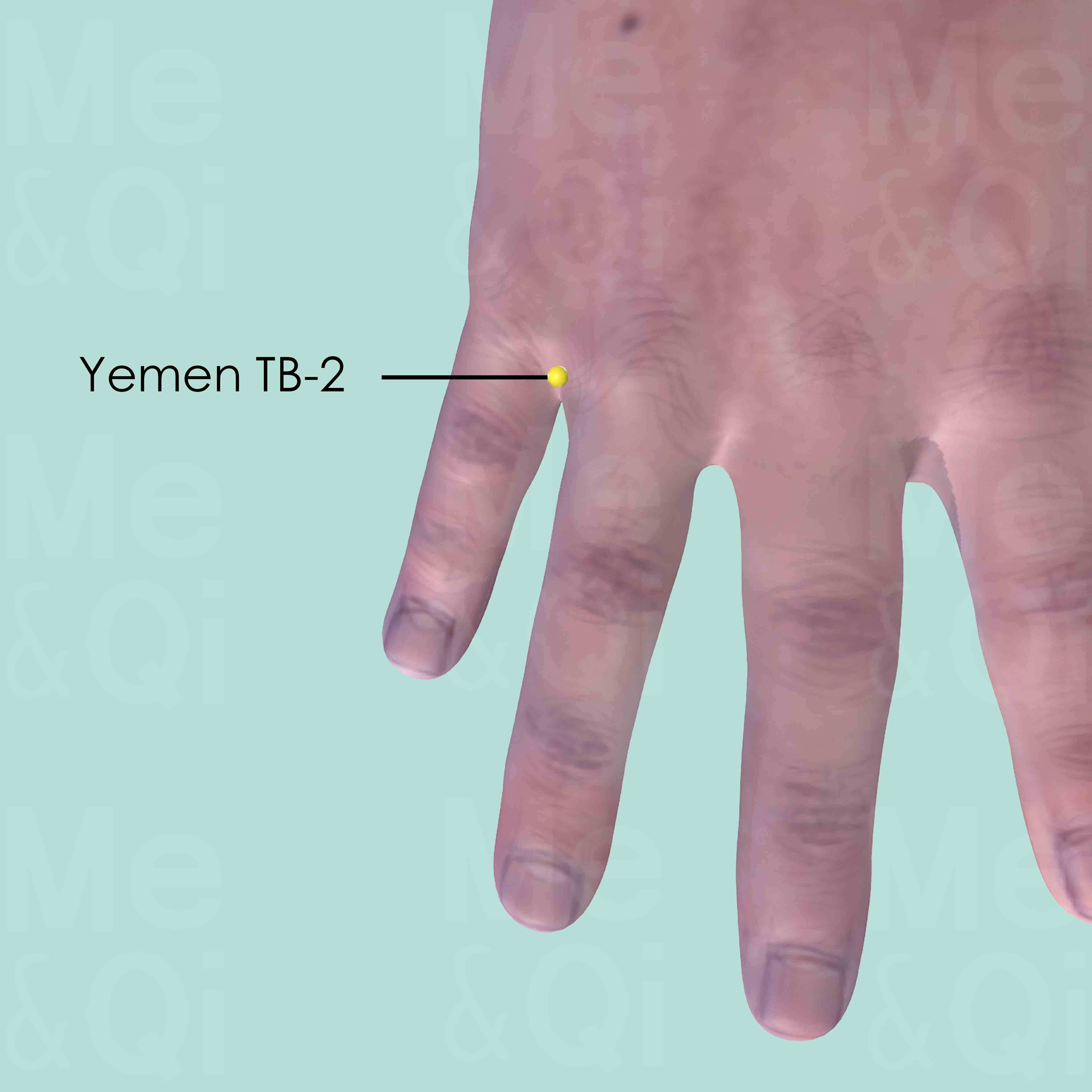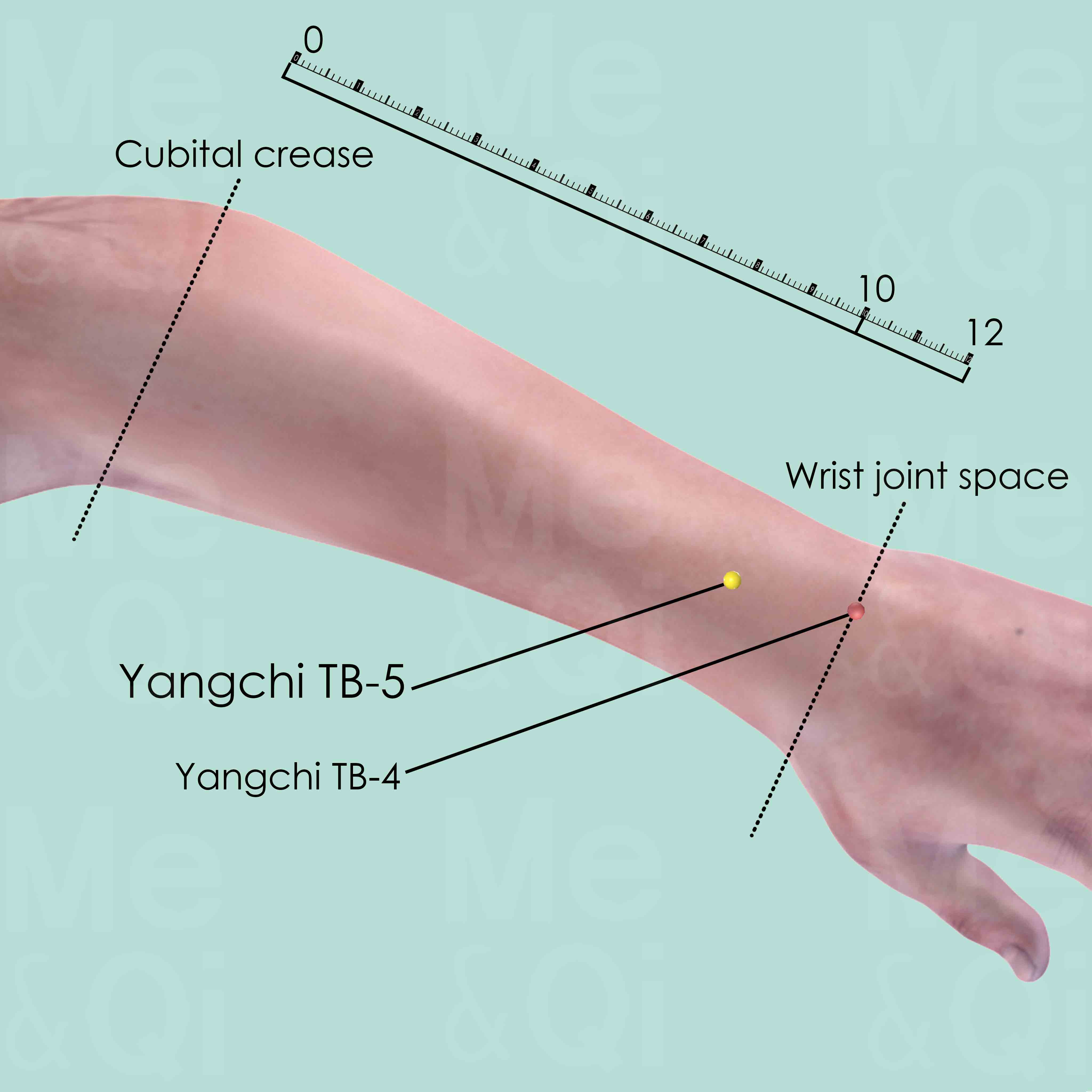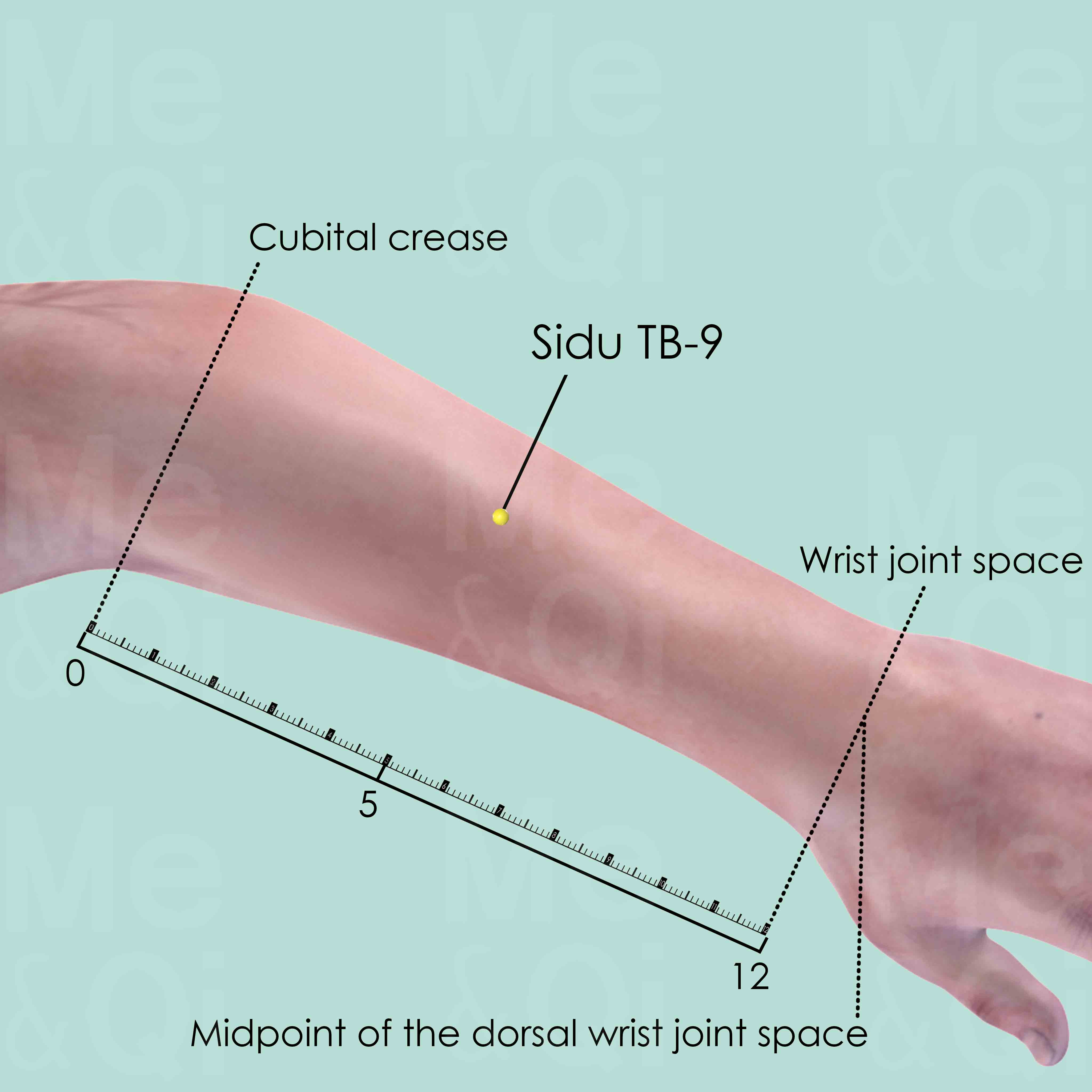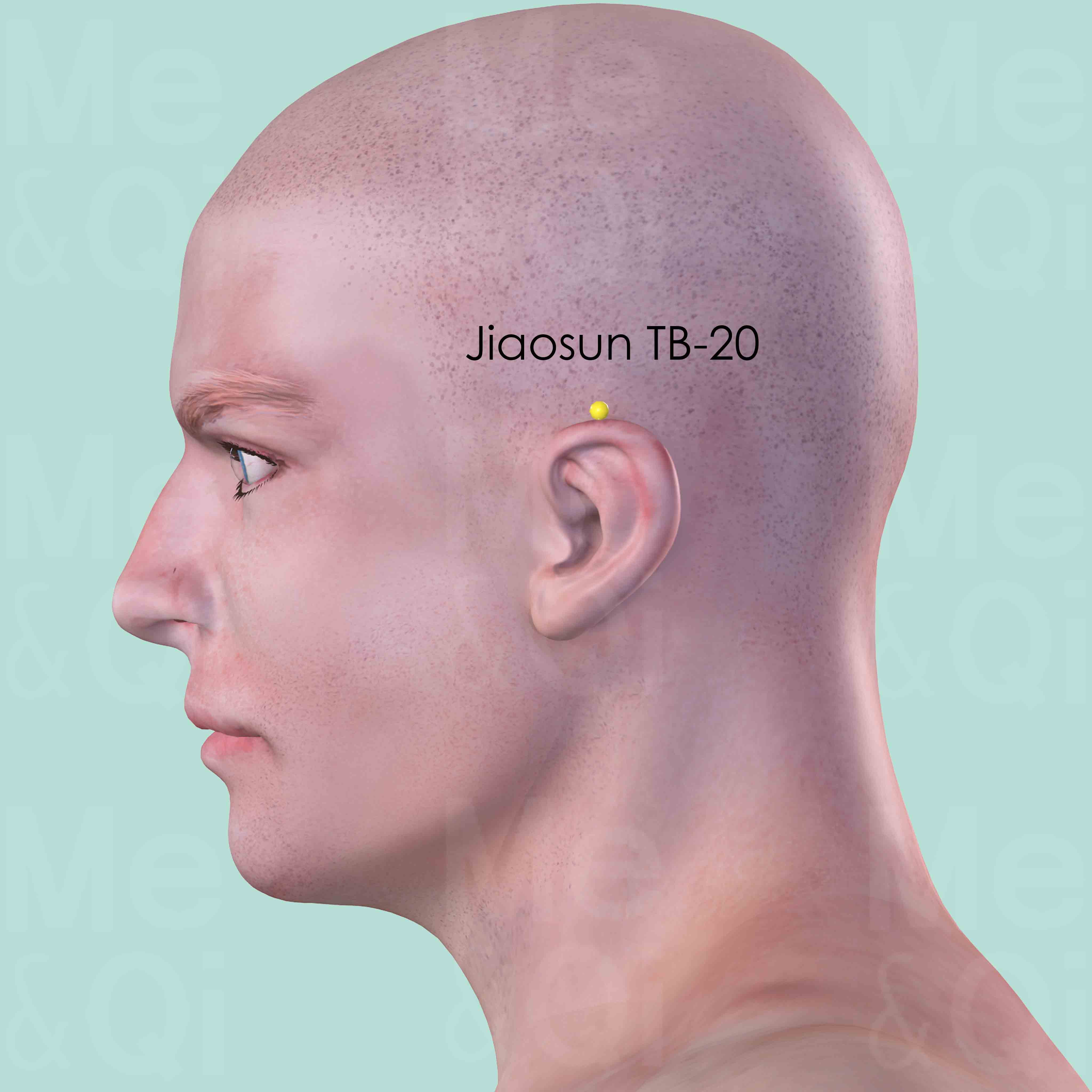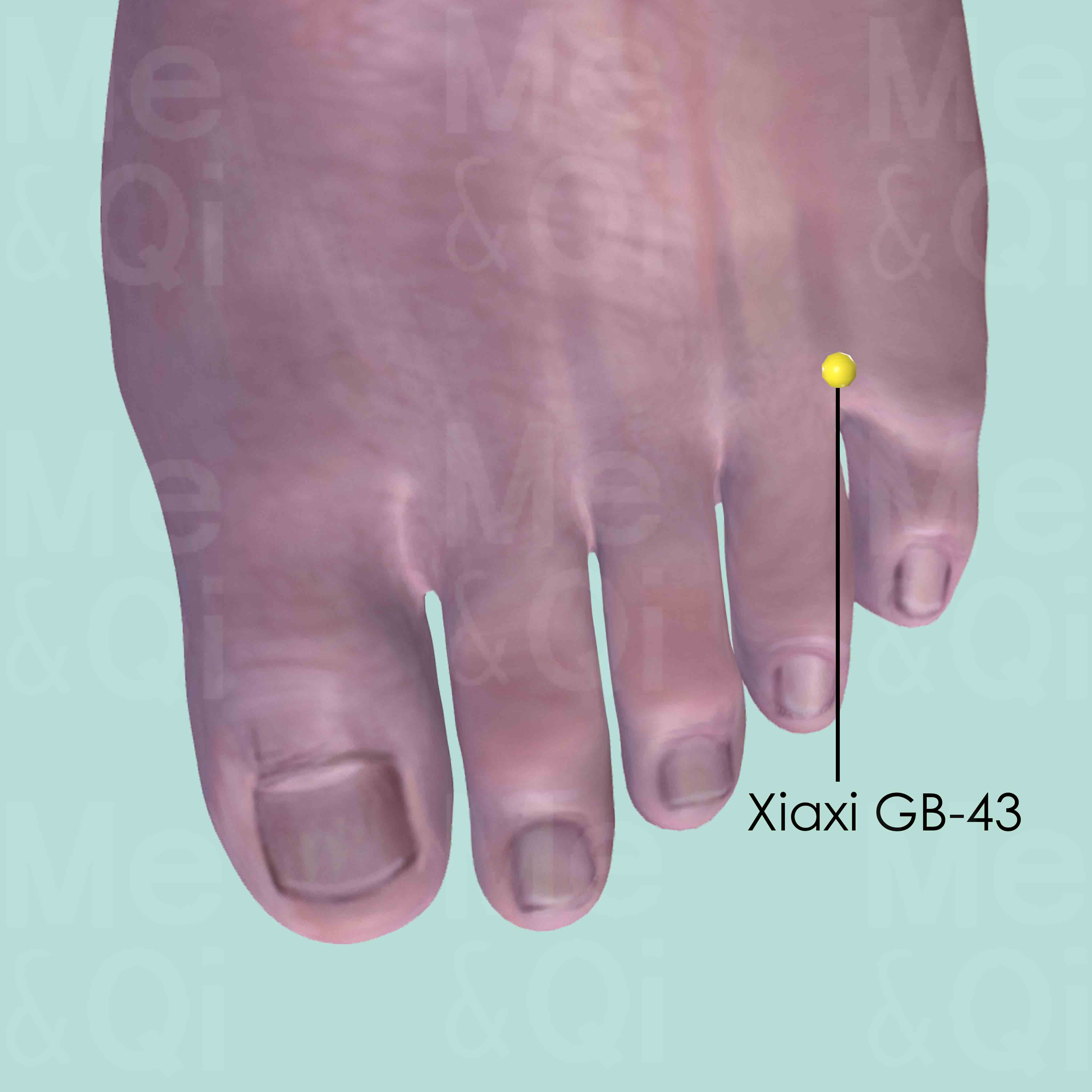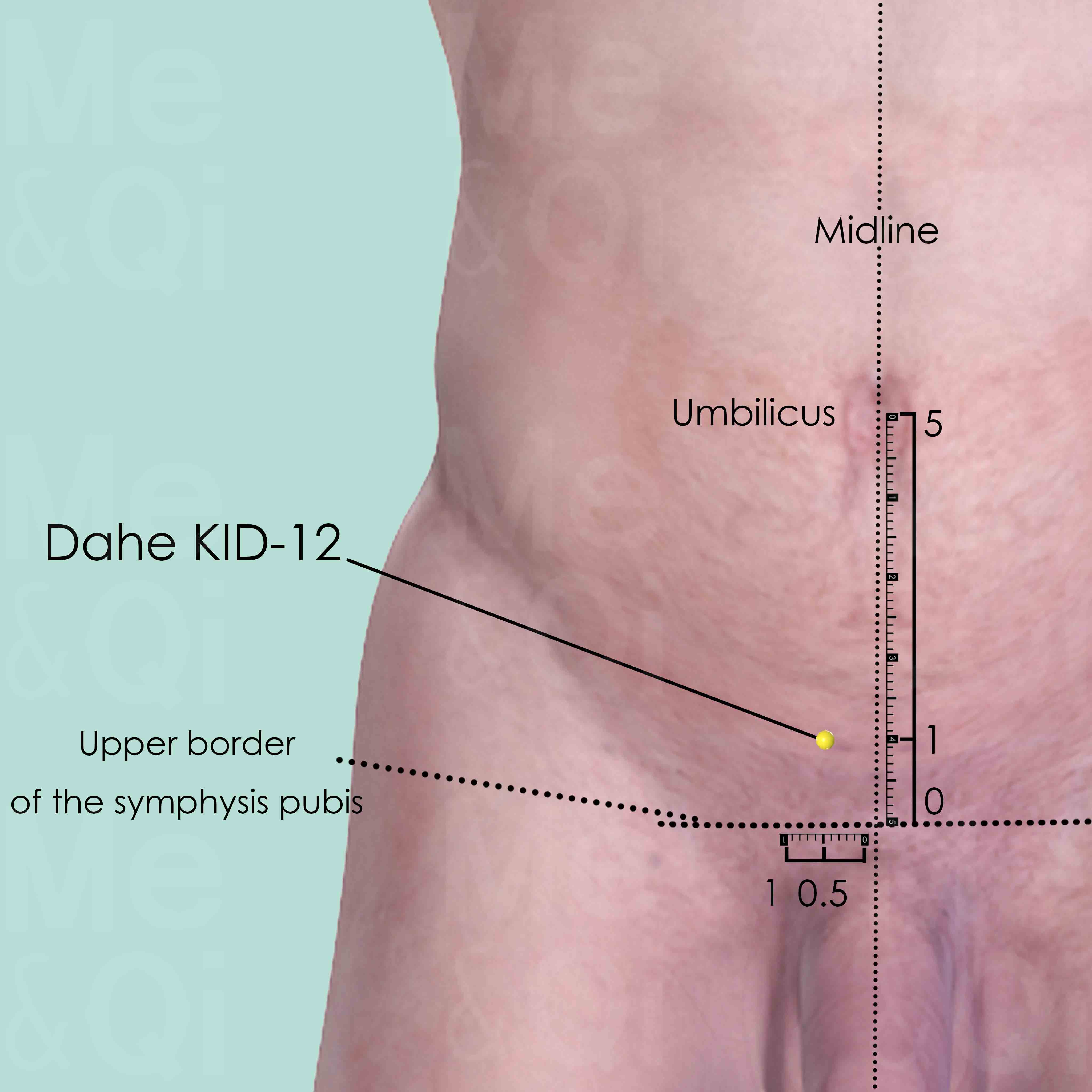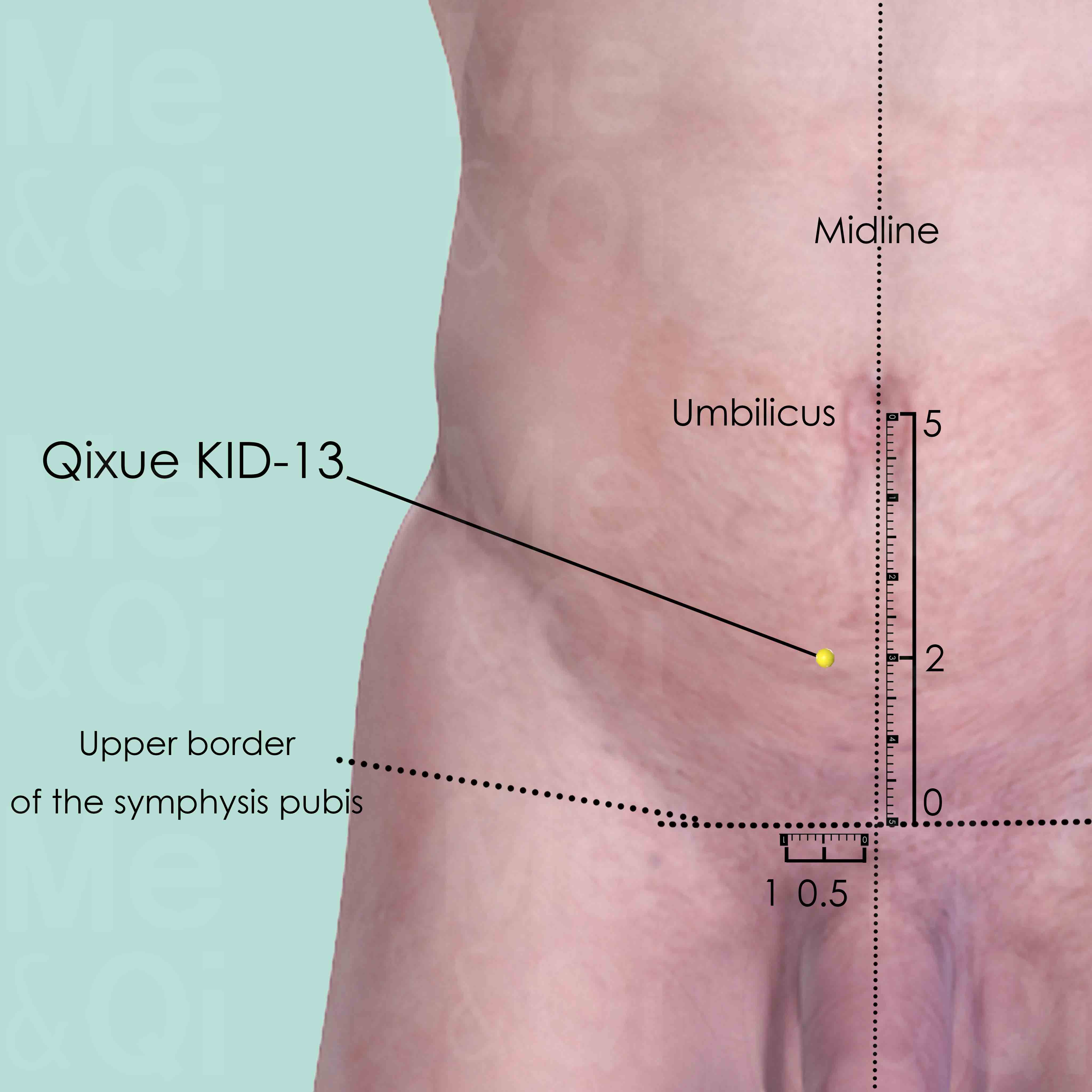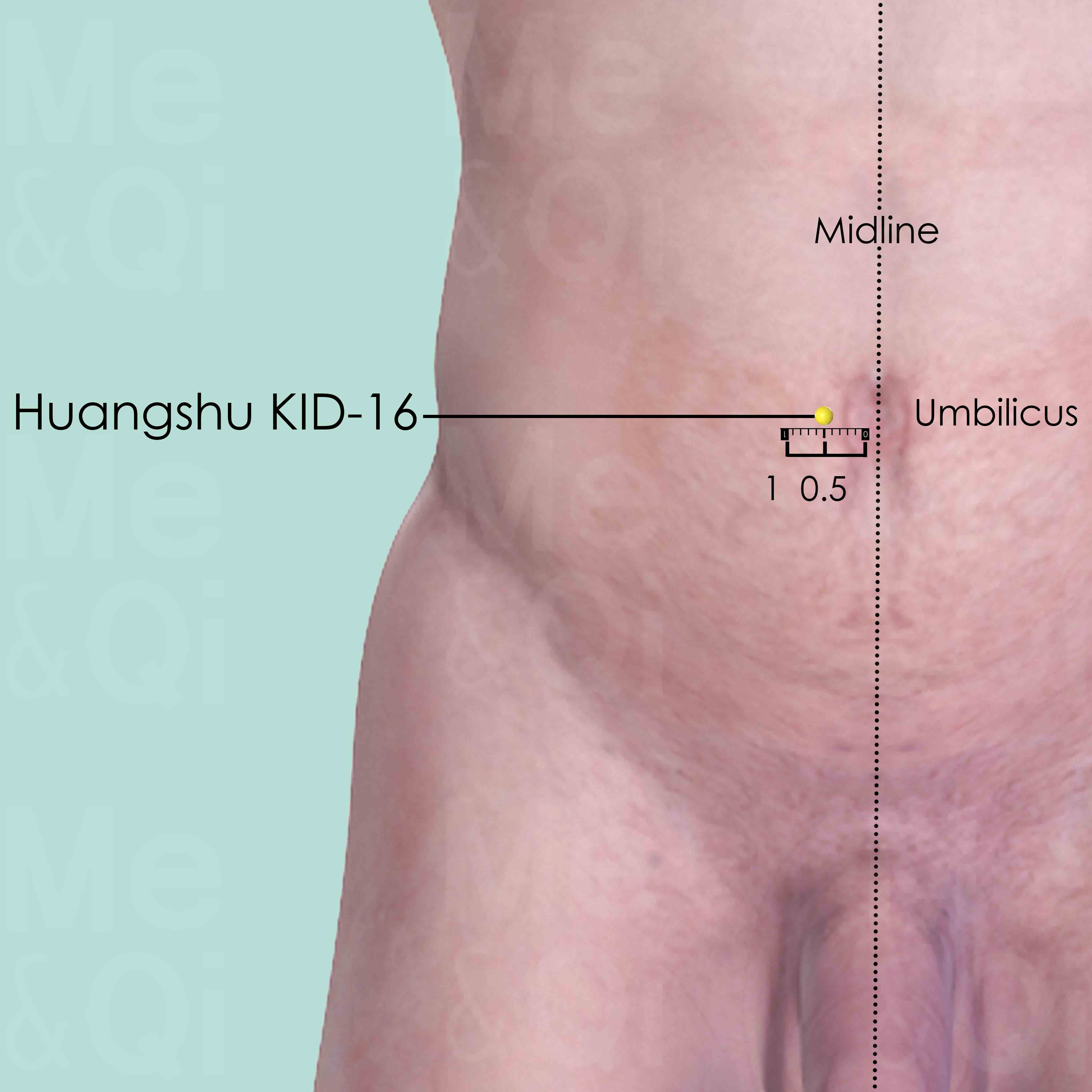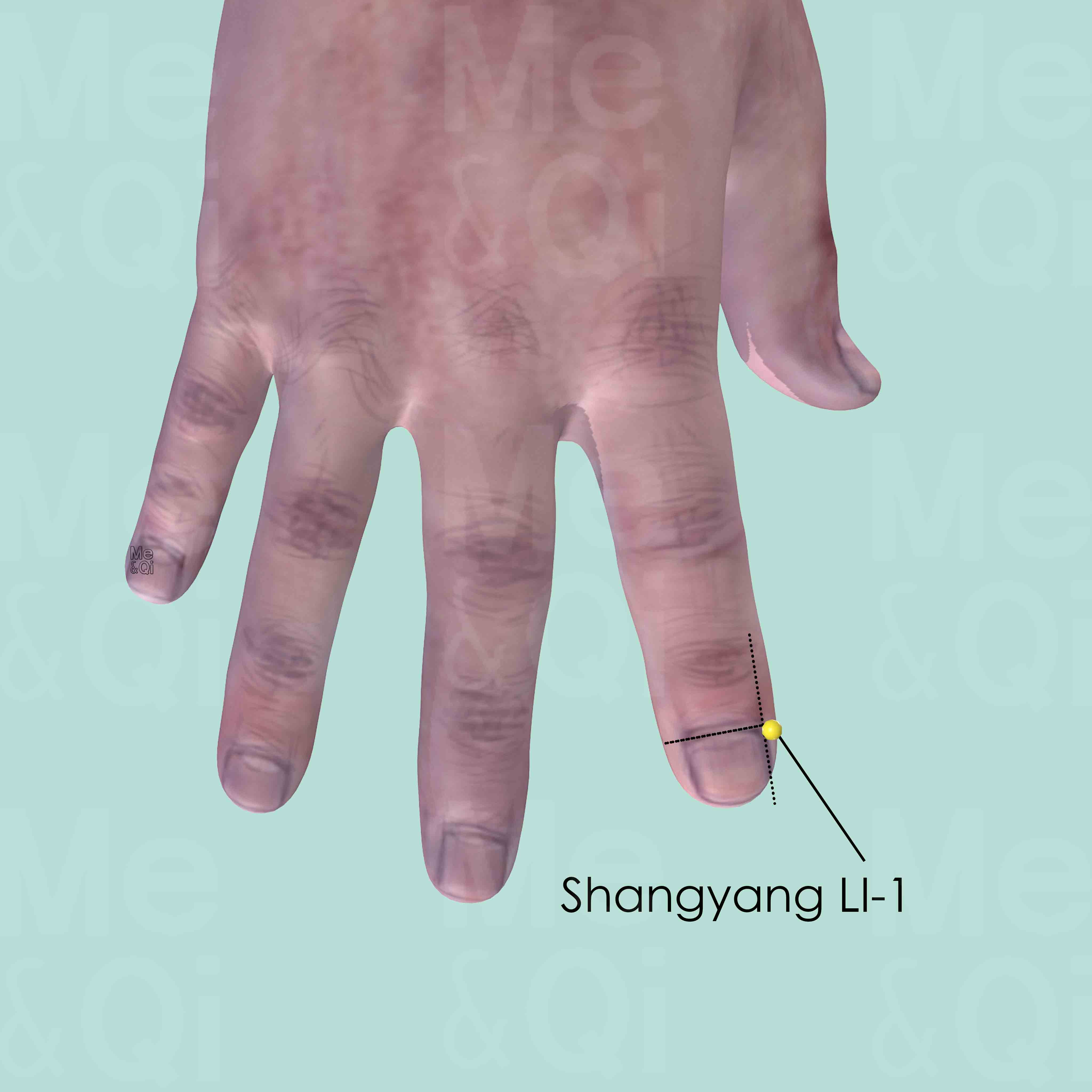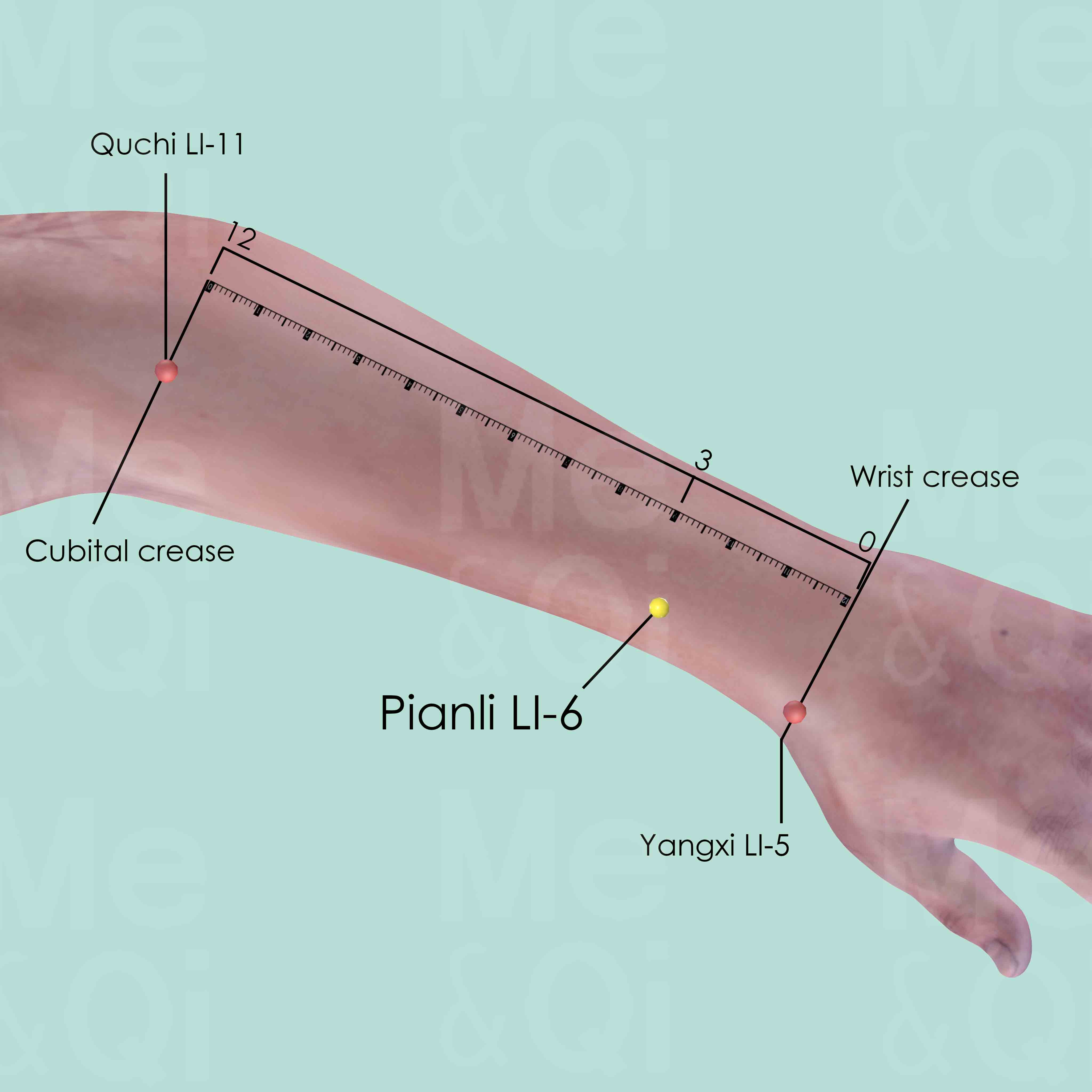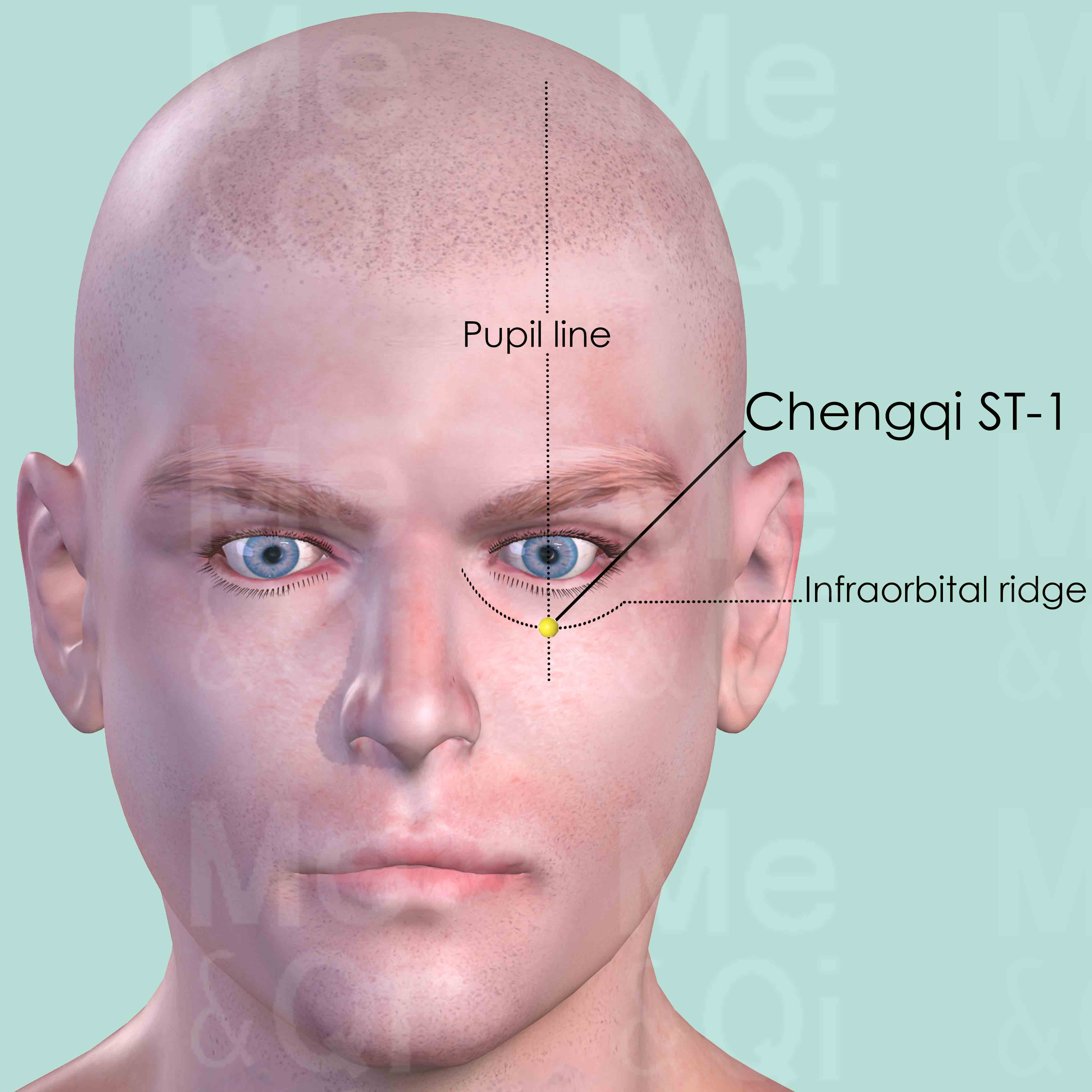Deafnessaccording to TCM
Symptom family: Hearing Disorders
Sub-symptom(s): Sudden Deafness Neural Deafness
What is Deafness?
Deafness is the partial or complete inability to hear. It can range from mild hearing impairment to total loss of hearing. This condition may occur suddenly or develop gradually over time. Deafness significantly impacts communication and can be a source of social isolation.
Traditional Chinese Medicine (TCM) interprets deafness not just as a symptom limited to the ears but as an indication of deeper imbalances in the body's energetic pathways.
How does TCM view Deafness?
TCM views deafness through a holistic lens, often attributing it to the disruption of Qi (vital energy) and Blood flow to the ears. This perspective considers the body as a network of interconnected systems where the ears are influenced by the health of the Kidneys, Liver, and Speen, among other organs.
TCM emphasizes identifying the underlying pattern causing deafness, as this will dictate the therapeutic approach. It's understood that treating the root cause is as important as addressing the symptom itself.
Root Causes of Deafness in TCM
In TCM, deafness is often associated with patterns like Full-Heat in the Small Intestine or Liver Fire Blazing, where excessive heat disrupts the function of the ears. Such patterns are characterized by additional symptoms like restlessness, insomnia, or tinnitus.
Another common pattern is Interior Wind, which may manifest as convulsions or dizziness along with deafness. By discerning these patterns, TCM practitioners can create a tailored treatment plan aimed at restoring balance and improving hearing.
Explore below more details about what might cause Deafness according to TCM.
- By Syndrome
- By Organ
- Heat
- Wind
- Qi Deficiency
- Essence Deficiency
- Yang Excess
- Yang Deficiency
- View More Causes
- Liver
- Kidney
- Spleen
- Stomach
- Small Intestine
- View More Organs
Heat
In TCM "Heat" signifies an excess of Yang energy, leading to an imbalance where heat predominates over the body's cool Yin aspects. This condition is metaphorically akin to an internal over-heating. Symptoms indicative of Heat can include feelings of warmth, fever, sweating, irritability, red face, thirst with a preference for cold drinks, and a rapid pulse. The tongue may appear red with a yellow coating. Unlike the common interpretation of heat in terms of temperature, in TCM, it represents a state of hyperactivity or inflammation in the body.... see more
Heat Patterns That Can Lead to Deafness
Common Symptoms: Irritability Anger Tinnitus Temporal Headache Dizziness Flushed Face Eye Hyperemia Thirst
| Pattern Name | Relevant Symptoms | Relevant Formulas |
|---|---|---|
| Full-Heat in the Small Intestine | Deafness, Restlessness, Insomnia, Tongue ulcers, Mouth ulcers, Throat pain, Cardiac burning sensation, Abdominal pain, Craving for cold beverages, Scanty and dark urine, Hematuria, Urinary burning... see more | Dao Chi San |
| Liver Fire Blazing | Deafness, Irritability, Anger, Tinnitus, Temporal headache, Dizziness, Flushed face, Eye hyperemia, Thirst, Bitter taste in the mouth, Vivid dreaming, Constipation, Dry stools, Dark urine, Nosebleeds, Hemoptysis, Vomiting blood... see more | Long Dan Xie Gan Tang | Dang Gui Long Hui Wan | Xie Qing Wan |
| Liver Wind agitating Internally due to Liver Fire | Deafness, Tremors, Irritability, Anger, Tinnitus, Temporal headache, Dizziness, Flushed face, Eye hyperemia, Thirst, Bitter taste in the mouth, Vivid dreaming, Constipation, Dry stools, Dark urine, Nosebleeds, Vomiting blood, Hemoptysis... see more | Ling Jiao Gou Teng Tang | Zi Xue Dan | Feng Yin Tang |
Wind
In TCM "Wind" is a concept that represents a pattern of disharmony, often characterized by its sudden and unpredictable nature, much like a gusty wind changing direction without warning. This pattern is associated with symptoms that come and go quickly or move around the body, such as itching, tremors, or even certain types of pain. Wind is considered to be a primary cause of illnesses that have these rapidly changing characteristics. In TCM, external Wind often refers to illnesses that start suddenly, like the common cold, believed to be caused by external pathogenic factors like climatic changes. On the other hand, internal Wind can be linked to internal imbalances and can manifest in conditions like dizziness or spasms. ... see more
Wind Patterns That Can Lead to Deafness
Common Symptoms: Dizziness Tremors Anger Irritability Eye Hyperemia Flushed Face Vivid Dreaming Constipation
| Pattern Name | Relevant Symptoms | Relevant Formulas |
|---|---|---|
| Interior Wind | Deafness, Convulsions, Hand tremor, Dizziness, Paralysis, Coma, Tic disorder, Mouth deviation, Eye deviation, Tremors, Headaches, Limb numbness... see more | Tian Ma Gou Teng Yin | Ling Jiao Gou Teng Tang | Liu Wei Di Huang Wan | Qi Ju Di Huang Wan | E Jiao Ji Zi Huang Tang | Zhen Gan Xi Feng Tang | Bu Gan Tang | Si Wu Tang |
| Liver Wind agitating Internally due to Liver Fire | Deafness, Tremors, Irritability, Anger, Tinnitus, Temporal headache, Dizziness, Flushed face, Eye hyperemia, Thirst, Bitter taste in the mouth, Vivid dreaming, Constipation, Dry stools, Dark urine, Nosebleeds, Vomiting blood, Hemoptysis... see more | Ling Jiao Gou Teng Tang | Zi Xue Dan | Feng Yin Tang |
Qi Deficiency
Qi Deficiency in TCM is like running low on battery power. Qi is the vital energy that powers every function in your body. When there's a Qi Deficiency, it means your body doesn't have enough of this essential energy. This can make you feel tired all the time, weak, or even cause shortness of breath. It's similar to how you feel when you haven't had enough sleep or nutritious food. Your body just doesn't have the energy it needs to perform at its best. Unlike modern medicine, which often focuses on specific physical causes for fatigue and weakness, TCM views Qi Deficiency as an overall energy depletion that affects your entire well-being, and it seeks to replenish and balance this vital energy.... see more
Qi Deficiency Patterns That Can Lead to Deafness
| Pattern Name | Relevant Symptoms | Relevant Formulas |
|---|---|---|
| Spleen and Stomach Qi Deficiency | Deafness, Dizziness, Unsteadiness, Blurry vision, Tinnitus, Shortness of breath, Weak voice, Pale face, Lack of appetite, Diarrhea, Belching... see more | Bu Zhong Yi Qi Tang |
Essence Deficiency
In TCM "Essence" (Jing) deficiency refers to a depletion of the body's fundamental substance, which is vital for growth, development, reproduction, and overall vitality. Jing, often translated as "Essence," is a unique concept in TCM, seen as the basis of all life activities and inherited from our parents. Essence deficiency manifests in various symptoms, such as chronic fatigue, weakness, slow physical or mental development, fertility issues, premature aging, weak bones, and a lackluster complexion. It can also affect the hair, leading to premature greying or hair loss. This pattern of disharmony often arises from congenital factors, chronic illness, overwork, or excessive behaviors that drain the body's resources. ... see more
Essence Deficiency Patterns That Can Lead to Deafness
| Pattern Name | Relevant Symptoms | Relevant Formulas |
|---|---|---|
| Kidney Essence Deficiency | Deafness, Loss of hearing or deafness, Decreased mental sharpness, Intellectual disability, Osteomalacia, Hair loss, Lower back pain, Infertility, Primary amenorrhea, Dizziness, Blurry vision, Absentmindness... see more | Zuo Gui Wan | Wu Zi Yan Zong Wan | Tu Si Zi Wan | Qi Bao Mei Ran Dan |
Yang Excess
Yang Excess in TCM refers to a state where there is an overabundance of Yang energy, leading to symptoms of heat and hyperactivity in the body. This pattern of disharmony often arises from factors like stress, excessive physical activity, overconsumption of spicy or heating foods, or an internal imbalance that causes Yang to flare up. Symptoms of Yang Excess include a feeling of heat, red face, irritability, restlessness, thirst, constipation, and a rapid, forceful pulse. Treatment in TCM for Yang Excess aims to cool down and subdue the excessive Yang while nurturing Yin energy to restore balance.... see more
Yang Excess Patterns That Can Lead to Deafness
| Pattern Name | Relevant Symptoms | Relevant Formulas |
|---|---|---|
| Liver Yang Rising | Deafness, Headaches, Dizziness, Tinnitus, Blurry vision, Dry mouth, Dry throat, Insomnia, Irritability, Exhaustion, Anger, Stiff neck, Shoulder stiffness, Stiff upper back... see more | Tian Ma Gou Teng Yin | Ling Jiao Gou Teng Tang | Liu Wei Di Huang Wan | Qi Ju Di Huang Wan | Da Chai Hu Tang | Zhen Zhu Mu Wan | Zhen Xin An Shen Tang |
Yang Deficiency
Yang deficiency in TCM refers to a state where the body's Yang energy, which is responsible for warmth, activity, and function, is weakened or diminished. This pattern of disharmony often arises from chronic illness, aging, or inherent constitutional weakness. Symptoms of Yang deficiency are typically associated with cold and sluggishness, such as a feeling of coldness, cold extremities, pale complexion, low energy or fatigue, and a desire for warmth. Digestive issues like poor appetite, loose stools, and water retention can also be indicative of Yang deficiency.... see more
Yang Deficiency Patterns That Can Lead to Deafness
| Pattern Name | Relevant Symptoms | Relevant Formulas |
|---|---|---|
| Kidney Yang Deficiency | Loss of hearing or deafness, Lower back pain, Dizziness, Tinnitus, Weak and cold knees, Lower back coldness, Chills, Weak legs, Bright pale face, Generalized fatigue, General weakness, Leg edema, Female infertility, Diarrhea, Depression, Erectile dysfunction, Premature ejaculation, Oligospermia, Low sex drive, Pale and abudant urination, Constipation... see more | Wu Zi Yan Zong Wan | Tu Si Zi Wan | Ba Wei Di Huang Wan | You Gui Wan | Er Xian Tang | Shen Qi Wan | Ji Chuan Jian |
Liver
In TCM the Liver is viewed as the organ responsible for the smooth flow of Qi, Blood, and emotions throughout the body. It plays a key role in regulating mood, storing blood, supporting digestion, and ensuring the health of tendons and eyes. When the Liver malfunctions or is imbalanced in TCM, it can lead to a range of issues such as irritability, mood swings, menstrual irregularities, eye problems, and muscular stiffness or pain. A malfunctioning Liver in TCM reflects not only physical disturbances but also emotional and mental disharmony, emphasizing the holistic approach of TCM in addressing health and wellness.... see more
Liver Patterns That Can Lead to Deafness
Common Symptoms: Irritability Anger Tinnitus Dizziness Dry Stools Temporal Headache Flushed Face Eye Hyperemia
| Pattern Name | Relevant Symptoms | Relevant Formulas |
|---|---|---|
| Liver Fire Blazing | Deafness, Irritability, Anger, Tinnitus, Temporal headache, Dizziness, Flushed face, Eye hyperemia, Thirst, Bitter taste in the mouth, Vivid dreaming, Constipation, Dry stools, Dark urine, Nosebleeds, Hemoptysis, Vomiting blood... see more | Long Dan Xie Gan Tang | Dang Gui Long Hui Wan | Xie Qing Wan |
| Liver Wind agitating Internally due to Liver Fire | Deafness, Tremors, Irritability, Anger, Tinnitus, Temporal headache, Dizziness, Flushed face, Eye hyperemia, Thirst, Bitter taste in the mouth, Vivid dreaming, Constipation, Dry stools, Dark urine, Nosebleeds, Vomiting blood, Hemoptysis... see more | Ling Jiao Gou Teng Tang | Zi Xue Dan | Feng Yin Tang |
| Liver Yang Rising | Deafness, Headaches, Dizziness, Tinnitus, Blurry vision, Dry mouth, Dry throat, Insomnia, Irritability, Exhaustion, Anger, Stiff neck, Shoulder stiffness, Stiff upper back... see more | Tian Ma Gou Teng Yin | Ling Jiao Gou Teng Tang | Liu Wei Di Huang Wan | Qi Ju Di Huang Wan | Da Chai Hu Tang | Zhen Zhu Mu Wan | Zhen Xin An Shen Tang |
Kidney
In TCM the Kidneys are regarded as the body's most fundamental reservoir of Essence, known as Jing, which influences growth, reproduction, and aging. They are not just organs for filtering blood, but a holistic system governing vital life forces. When the Kidneys malfunction in TCM, it can manifest as a variety of health issues, such as chronic fatigue, reproductive problems, imbalances in fluid metabolism leading to edema or dryness, lower back pain, and a sense of fear or insecurity.... see more
Kidney Patterns That Can Lead to Deafness
Common Symptoms: Lower Back Pain Infertility Dizziness Weak Limbs Poor Memory Loose Teeth Premature Aging Back Pain
| Pattern Name | Relevant Symptoms | Relevant Formulas |
|---|---|---|
| Kidney Essence Deficiency | Deafness, Loss of hearing or deafness, Decreased mental sharpness, Intellectual disability, Osteomalacia, Hair loss, Lower back pain, Infertility, Primary amenorrhea, Dizziness, Blurry vision, Absentmindness... see more | Zuo Gui Wan | Wu Zi Yan Zong Wan | Tu Si Zi Wan | Qi Bao Mei Ran Dan |
| Kidney Yang Deficiency | Loss of hearing or deafness, Lower back pain, Dizziness, Tinnitus, Weak and cold knees, Lower back coldness, Chills, Weak legs, Bright pale face, Generalized fatigue, General weakness, Leg edema, Female infertility, Diarrhea, Depression, Erectile dysfunction, Premature ejaculation, Oligospermia, Low sex drive, Pale and abudant urination, Constipation... see more | Wu Zi Yan Zong Wan | Tu Si Zi Wan | Ba Wei Di Huang Wan | You Gui Wan | Er Xian Tang | Shen Qi Wan | Ji Chuan Jian |
Spleen
In TCM the Spleen plays a vital role in digestion and transformation, converting food into energy and nutrients, and overseeing the distribution of Qi and Blood. It's also crucial in maintaining the health of muscles and limbs and ensuring the blood remains within the vessels. When the Spleen malfunctions in TCM, it can lead to a variety of issues such as digestive disorders, fatigue, weak muscles, bloating, and a feeling of heaviness. It can also cause a pale complexion, poor appetite, and a tendency to bruise easily. Emotionally, a Spleen imbalance is often associated with excessive worry or overthinking, reflecting its role in the interplay between physical and mental health.... see more
Spleen Patterns That Can Lead to Deafness
| Pattern Name | Relevant Symptoms | Relevant Formulas |
|---|---|---|
| Spleen and Stomach Qi Deficiency | Deafness, Dizziness, Unsteadiness, Blurry vision, Tinnitus, Shortness of breath, Weak voice, Pale face, Lack of appetite, Diarrhea, Belching... see more | Bu Zhong Yi Qi Tang |
Stomach
In TCM the Stomach is regarded as the "sea of nourishment," pivotal for digesting food and transforming it into Qi and blood. It works closely with the Spleen to distribute these essential nutrients throughout the body. When the Stomach is out of balance or malfunctions in TCM, it often leads to digestive problems such as bloating, nausea, vomiting, poor appetite, or a feeling of fullness. There may also be issues like acid reflux or a sour taste in the mouth. Emotionally, an imbalanced Stomach can contribute to excessive worry and overthinking, reflecting the TCM belief that physical and emotional well-being are deeply interconnected.... see more
Stomach Patterns That Can Lead to Deafness
| Pattern Name | Relevant Symptoms | Relevant Formulas |
|---|---|---|
| Spleen and Stomach Qi Deficiency | Deafness, Dizziness, Unsteadiness, Blurry vision, Tinnitus, Shortness of breath, Weak voice, Pale face, Lack of appetite, Diarrhea, Belching... see more | Bu Zhong Yi Qi Tang |
Small Intestine
In TCM the Small Intestine plays a critical role in receiving partially digested food from the Stomach and further separating the clear from the turbid, essentially distinguishing nutrients from waste. This process is vital for proper absorption and assimilation of food. The Small Intestine is also associated with clarity of judgment and decision-making. When it malfunctions or is imbalanced in TCM, it can lead to digestive issues such as abdominal pain, bloating, poor appetite, or irregular bowel movements. Additionally, a malfunctioning Small Intestine may manifest as mental confusion or difficulty in making decisions, reflecting its role in discernment and clarity in both physical and mental realms. ... see more
Small Intestine Patterns That Can Lead to Deafness
| Pattern Name | Relevant Symptoms | Relevant Formulas |
|---|---|---|
| Full-Heat in the Small Intestine | Deafness, Restlessness, Insomnia, Tongue ulcers, Mouth ulcers, Throat pain, Cardiac burning sensation, Abdominal pain, Craving for cold beverages, Scanty and dark urine, Hematuria, Urinary burning... see more | Dao Chi San |
TCM Herbal Formulas for Deafness
For conditions like Full-Heat in the Small Intestine, TCM recommends cooling formulas such as Dao Chi San to clear heat and promote fluid balance.
In cases of Liver Fire Blazing, a formula like Long Dan Xie Gan Tang might be used to purge excessive fire and alleviate symptoms like irritability and tinnitus. Each herbal prescription is carefully chosen based on the individual’s specific TCM pattern, showcasing the personalized nature of this medical system.
Explore below some TCM herbal formulas used to address deafness, organized by cause and by formula type.
- By Cause
- By Formula Type
- Heat
- Wind
- Qi Deficiency
- Essence Deficiency
- Yang Excess
- Yang Deficiency
- View More Causes
- Formulas that clear heat from the organs
- Formulas that pacify and extinguish internal wind
- Formulas that nourish yin and tonify
- Formulas that warm yang and tonify
- Formulas that tonify blood
- Formulas that tonify yin and yang
- Formulas that sedate and calm the mind
- Formulas that tonify qi
- Formulas that clear heat and open sensory orifices
- Formulas that dredge and disperse external wind
- Formulas that release the exterior and purge the interior
- Formulas that nourish the heart and calm the mind
- Formulas that moisten intestines and unblock bowels
Top Formula for Heat:
Ling Jiao Gou Teng Tang
Suitable for Heat patterns that may cause deafness, such as Liver Wind agitating Internally due to Liver Fire
Learn moreAll Formulas Recommended for Deafness Caused by Heat
| Formula | Patterns Suitable For |
|---|---|
| Ling Jiao Gou Teng Tang | Liver Wind agitating Internally due to Liver Fire |
| Dao Chi San | Full-Heat in the Small Intestine |
| Long Dan Xie Gan Tang | Liver Fire Blazing |
| Dang Gui Long Hui Wan | Liver Fire Blazing |
| Xie Qing Wan | Liver Fire Blazing |
| Zi Xue Dan | Liver Wind agitating Internally due to Liver Fire |
| Feng Yin Tang | Liver Wind agitating Internally due to Liver Fire |
Top Formula for Wind:
Ling Jiao Gou Teng Tang
Suitable for Wind patterns that may cause deafness, such as Interior Wind or Liver Wind agitating Internally due to Liver Fire
Learn moreAll Formulas Recommended for Deafness Caused by Wind
| Formula | Patterns Suitable For |
|---|---|
| Ling Jiao Gou Teng Tang | Interior Wind, Liver Wind agitating Internally due to Liver Fire |
| Tian Ma Gou Teng Yin | Interior Wind |
| Liu Wei Di Huang Wan | Interior Wind |
| Qi Ju Di Huang Wan | Interior Wind |
| E Jiao Ji Zi Huang Tang | Interior Wind |
| Zhen Gan Xi Feng Tang | Interior Wind |
| Bu Gan Tang | Interior Wind |
| Si Wu Tang | Interior Wind |
| Zi Xue Dan | Liver Wind agitating Internally due to Liver Fire |
| Feng Yin Tang | Liver Wind agitating Internally due to Liver Fire |
Top Formula for Qi Deficiency:
Bu Zhong Yi Qi Tang
Suitable for Qi Deficiency patterns that may cause deafness, such as Spleen and Stomach Qi Deficiency
Learn moreTop Formula for Essence Deficiency:
Wu Zi Yan Zong Wan
Suitable for Essence Deficiency patterns that may cause deafness, such as Kidney Essence Deficiency
Learn moreAll Formulas Recommended for Deafness Caused by Essence Deficiency
| Formula | Patterns Suitable For |
|---|---|
| Wu Zi Yan Zong Wan | Kidney Essence Deficiency |
| Tu Si Zi Wan | Kidney Essence Deficiency |
| Zuo Gui Wan | Kidney Essence Deficiency |
| Qi Bao Mei Ran Dan | Kidney Essence Deficiency |
Top Formula for Yang Excess:
Ling Jiao Gou Teng Tang
Suitable for Yang Excess patterns that may cause deafness, such as Liver Yang Rising
Learn moreAll Formulas Recommended for Deafness Caused by Yang Excess
| Formula | Patterns Suitable For |
|---|---|
| Ling Jiao Gou Teng Tang | Liver Yang Rising |
| Tian Ma Gou Teng Yin | Liver Yang Rising |
| Liu Wei Di Huang Wan | Liver Yang Rising |
| Qi Ju Di Huang Wan | Liver Yang Rising |
| Da Chai Hu Tang | Liver Yang Rising |
| Zhen Zhu Mu Wan | Liver Yang Rising |
| Zhen Xin An Shen Tang | Liver Yang Rising |
Top Formula for Yang Deficiency:
Wu Zi Yan Zong Wan
Suitable for Yang Deficiency patterns that may cause deafness, such as Kidney Yang Deficiency
Learn moreAll Formulas Recommended for Deafness Caused by Yang Deficiency
| Formula | Patterns Suitable For |
|---|---|
| Wu Zi Yan Zong Wan | Kidney Yang Deficiency |
| Tu Si Zi Wan | Kidney Yang Deficiency |
| Ba Wei Di Huang Wan | Kidney Yang Deficiency |
| You Gui Wan | Kidney Yang Deficiency |
| Er Xian Tang | Kidney Yang Deficiency |
| Shen Qi Wan | Kidney Yang Deficiency |
| Ji Chuan Jian | Kidney Yang Deficiency |
Formulas that nourish Yin and tonify
These formulas are suitable for some deafness-causing patterns like Interior Wind or Liver Yang Rising.
One such formula is Liu Wei Di Huang Wan, with prepared rehmannia as a key herb.
Other formulas of this category are listed in the table below.
All "formulas that nourish yin and tonify" recommended for deafness
| Formula | Patterns Suitable For (if applicable) |
|---|---|
| Liu Wei Di Huang Wan | Interior Wind, Liver Yang Rising |
| Qi Ju Di Huang Wan | Interior Wind, Liver Yang Rising |
| Zuo Gui Wan | Kidney Essence Deficiency |
| Ba Wei Di Huang Wan | Kidney Yang Deficiency |
Formulas that pacify and extinguish Internal Wind
These formulas are suitable for some deafness-causing patterns like Interior Wind or Liver Wind agitating Internally due to Liver Fire.
One such formula is Ling Jiao Gou Teng Tang, with saiga antelope's horns as a key herb.
Other formulas of this category are listed in the table below.
All "formulas that pacify and extinguish internal wind" recommended for deafness
| Formula | Patterns Suitable For (if applicable) |
|---|---|
| Ling Jiao Gou Teng Tang | Interior Wind, Liver Wind agitating Internally due to Liver Fire, Liver Yang Rising... see more |
| Tian Ma Gou Teng Yin | Interior Wind, Liver Yang Rising |
| E Jiao Ji Zi Huang Tang | Interior Wind |
| Zhen Gan Xi Feng Tang | Interior Wind |
Formulas that clear Heat from the Organs
These formulas are suitable for some deafness-causing patterns like Full-Heat in the Small Intestine.
One such formula is Dao Chi San, with akebia stem as a key herb.
Other formulas of this category are listed in the table below.
All "formulas that clear heat from the organs" recommended for deafness
| Formula | Patterns Suitable For (if applicable) |
|---|---|
| Dao Chi San | Full-Heat in the Small Intestine |
| Long Dan Xie Gan Tang | Liver Fire Blazing |
| Dang Gui Long Hui Wan | Liver Fire Blazing |
| Xie Qing Wan | Liver Fire Blazing |
Formulas that warm Yang and tonify
These formulas are suitable for some deafness-causing patterns like Kidney Essence Deficiency or Kidney Yang Deficiency.
One such formula is Wu Zi Yan Zong Wan, with cuscuta seeds as a key herb.
Other formulas of this category are listed in the table below.
All "formulas that warm yang and tonify" recommended for deafness
| Formula | Patterns Suitable For (if applicable) |
|---|---|
| Wu Zi Yan Zong Wan | Kidney Essence Deficiency, Kidney Yang Deficiency |
| Tu Si Zi Wan | Kidney Essence Deficiency, Kidney Yang Deficiency |
| You Gui Wan | Kidney Yang Deficiency |
| Shen Qi Wan | Kidney Yang Deficiency |
Formulas that tonify Yin and Yang
These formulas are suitable for some deafness-causing patterns like Kidney Essence Deficiency.
One such formula is Qi Bao Mei Ran Dan, with fleeceflower root as a key herb.
Other formulas of this category are listed in the table below.
All "formulas that tonify yin and yang" recommended for deafness
| Formula | Patterns Suitable For (if applicable) |
|---|---|
| Qi Bao Mei Ran Dan | Kidney Essence Deficiency |
| Er Xian Tang | Kidney Yang Deficiency |
Formulas that tonify Blood
These formulas are suitable for some deafness-causing patterns like Interior Wind.
One such formula is Bu Gan Tang, with prepared rehmannia as a key herb.
Other formulas of this category are listed in the table below.
All "formulas that tonify blood" recommended for deafness
| Formula | Patterns Suitable For (if applicable) |
|---|---|
| Bu Gan Tang | Interior Wind |
| Si Wu Tang | Interior Wind |
Formulas that sedate and calm the Mind
These formulas are suitable for some deafness-causing patterns like Liver Yang Rising.
One such formula is Zhen Zhu Mu Wan, with mother of pearl as a key herb.
Other formulas of this category are listed in the table below.
All "formulas that sedate and calm the mind" recommended for deafness
| Formula | Patterns Suitable For (if applicable) |
|---|---|
| Zhen Zhu Mu Wan | Liver Yang Rising |
| Ci Zhu Wan | Not applicable |
Formulas that tonify Qi
These formulas are suitable for some deafness-causing patterns like Spleen and Stomach Qi Deficiency.
One such formula is Bu Zhong Yi Qi Tang, with milkvetch root as a key herb.
Formulas that clear Heat and open sensory orifices
These formulas are suitable for some deafness-causing patterns like Liver Wind agitating Internally due to Liver Fire.
One such formula is Zi Xue Dan, with water buffalo horn as a key herb.
Formulas that dredge and disperse External Wind
These formulas are suitable for some deafness-causing patterns like Liver Wind agitating Internally due to Liver Fire.
One such formula is Feng Yin Tang, with dragon bones as a key herb.
Formulas that release the Exterior and purge the Interior
These formulas are suitable for some deafness-causing patterns like Liver Yang Rising.
One such formula is Da Chai Hu Tang, with bupleurum root as a key herb.
Formulas that nourish the Heart and calm the Mind
These formulas are suitable for some deafness-causing patterns like Liver Yang Rising.
One such formula is Zhen Xin An Shen Tang
Formulas that moisten Intestines and unblock bowels
These formulas are suitable for some deafness-causing patterns like Kidney Yang Deficiency.
One such formula is Ji Chuan Jian, with desert-living cistanche as a key herb.
Acupoints for Deafness
TCM also employs acupuncture to address deafness. Points like Ermen TB-21, located near the ear, are stimulated to benefit ear function and expel Wind, which is often thought to invade the Channels affecting hearing.
Other points like Fengchi GB-20, located at the base of the skull, help subdue Liver Yang and can expel pathogenic wind, benefiting both the eyes and ears. The selection of acupoints, like herbal formulas, is based on the individual's pattern differentiation, ensuring a targeted approach to treatment.
Explore below some acupoints used to address deafness, organized by meridian.
- By Meridian
- Triple Burner Channel
- Gall Bladder Channel
- Small Intestine Channel
- Kidney Channel
- Large Intestine Channel
- Stomach Channel
- Bladder Channel
- Extra Points: Head and Neck (EX-HN)
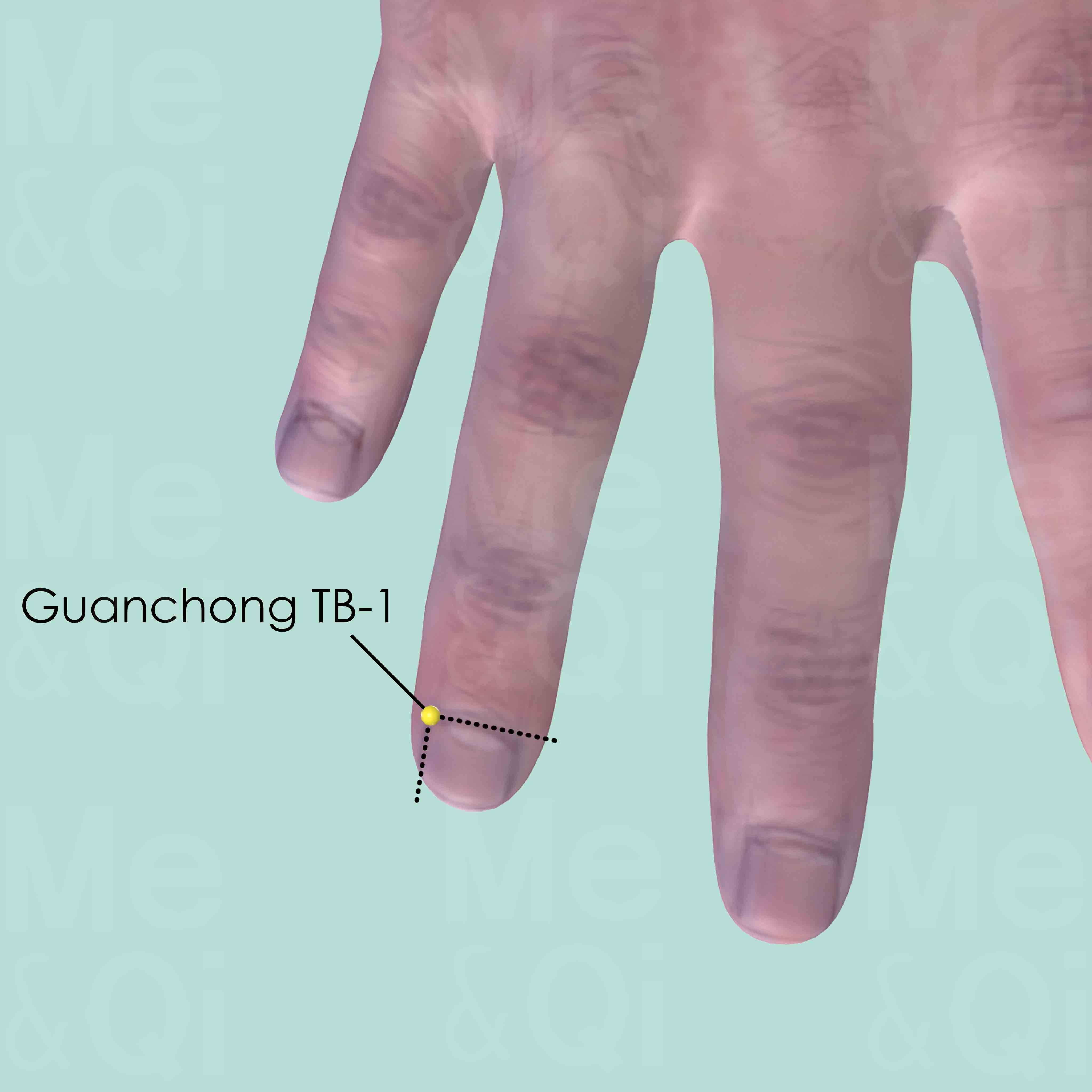
Guanchong TB-1
On the lateral side of the ring finger, about 0.1 cun posterior to the corner of the nail.
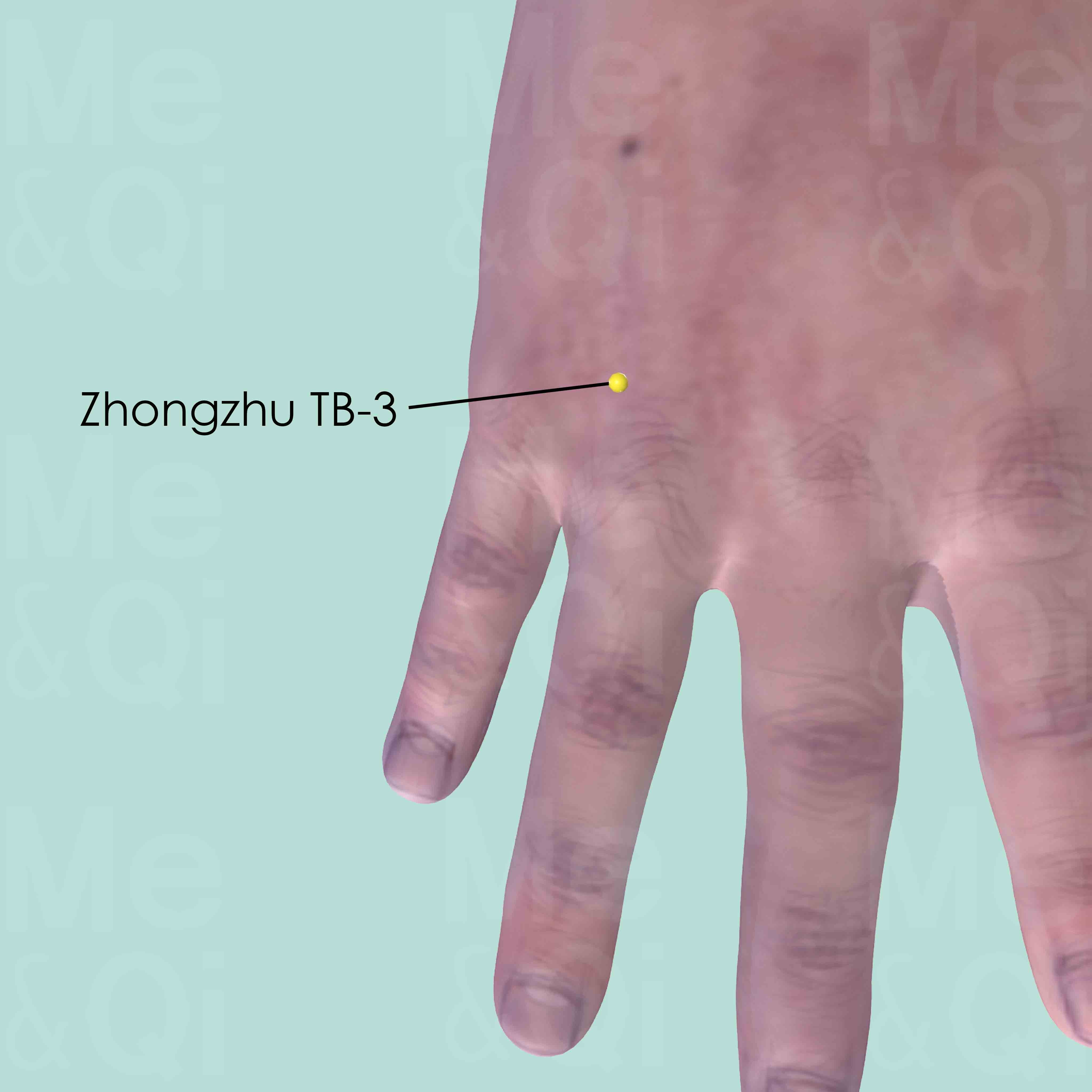
Zhongzhu TB-3
When the hand is placed with the palm facing downward, Zhongzhu TB-3 is on the hand dorsum between the 4th and 5th metacarpal bones, in the depression proximal to the metacarpophalangeal joints, at the junction between the heads and shaft of the two metacarpal bones.
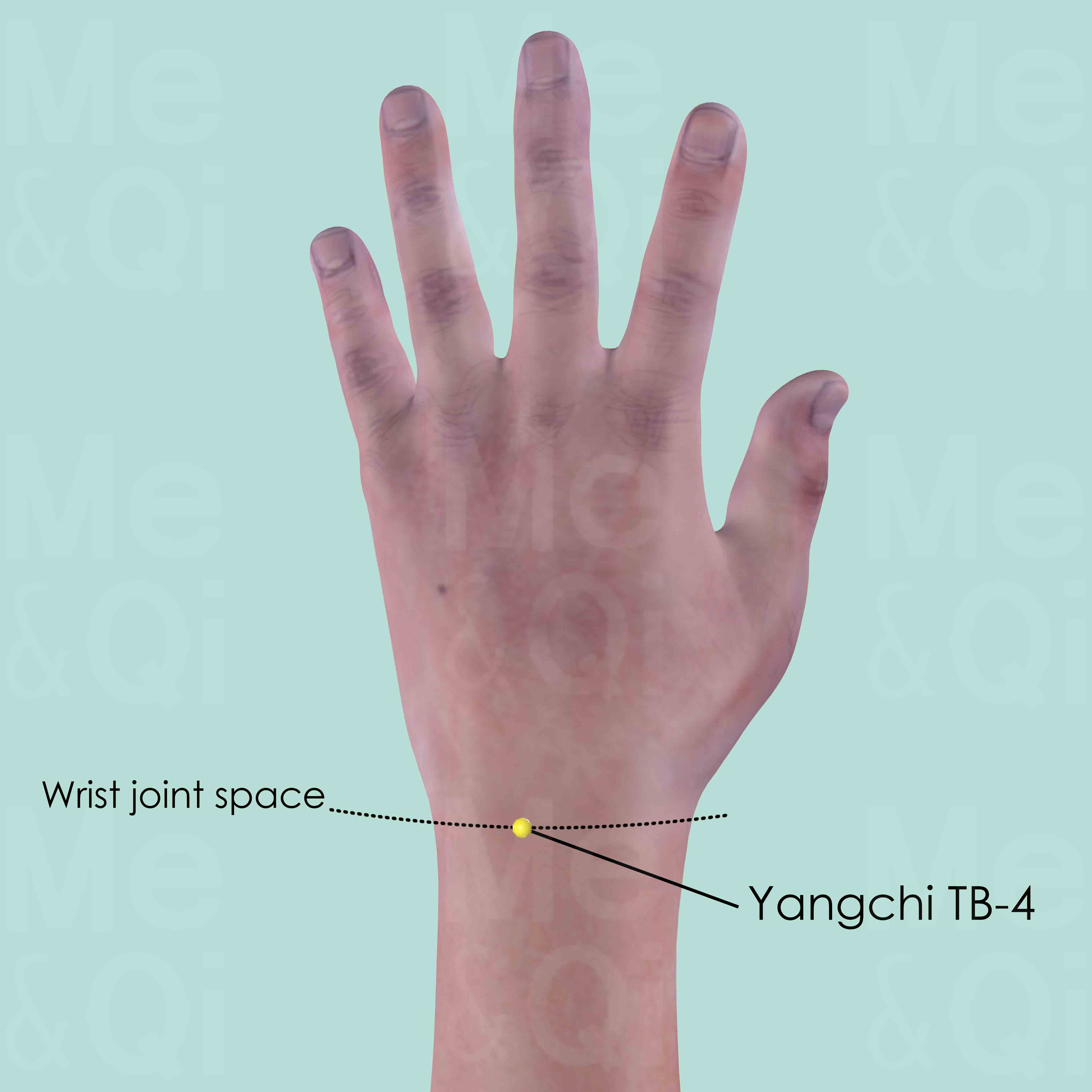
Yangchi TB-4
At the junction of the ulna carpal bones of the wrist dorsum, in the depression lateral to the tendon of extensor digitorum and extensor digiti minimi muscle.
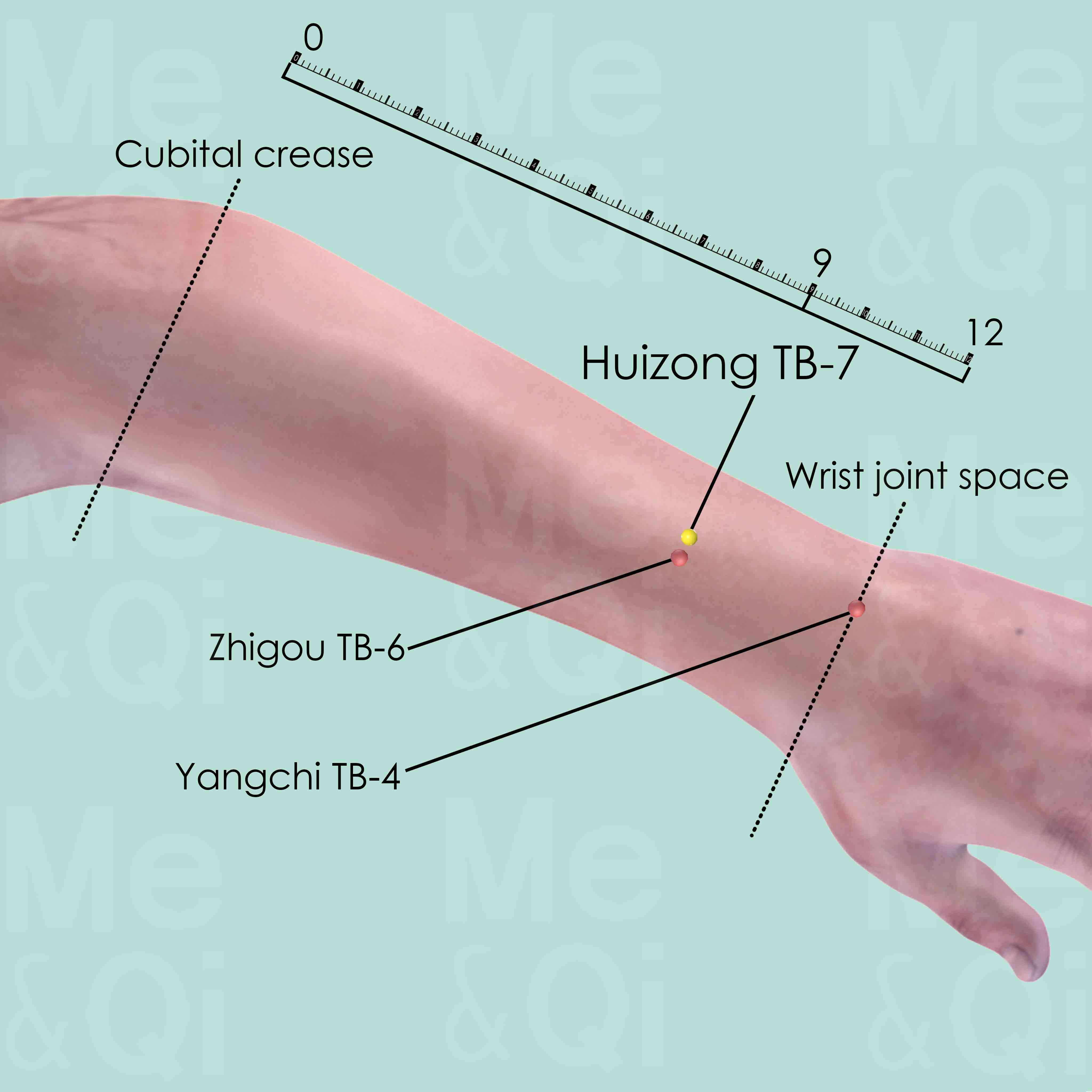
Huizong ST-7
3 cun proximal to the dorsal wrist joint space and 0.5 cun ulnar to the forearm center.
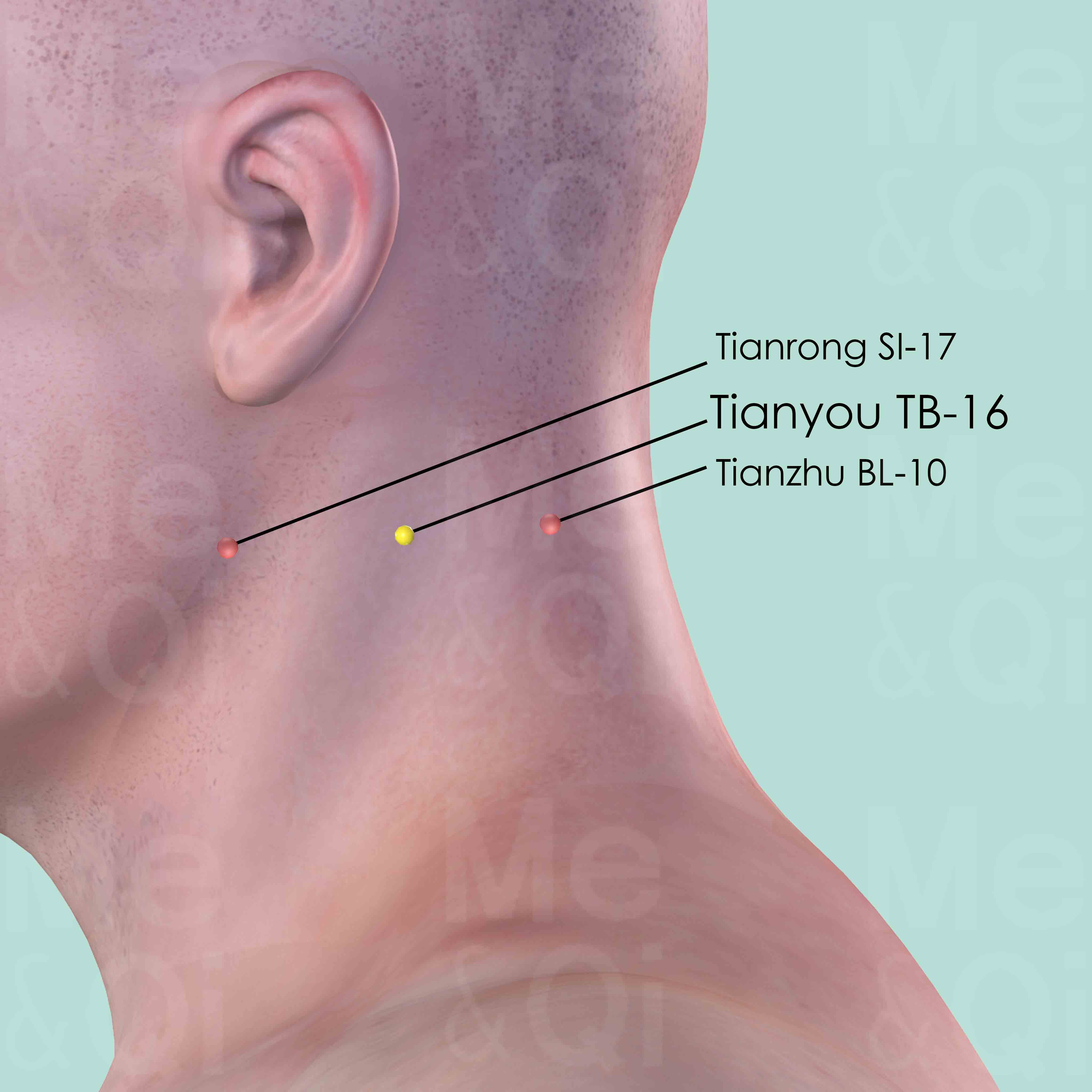
Tianyou TB-16
Posterior and inferior to the mastoid process, on the posterior border of sternocleidomastoid muscle, level with Tianrong SI-17 and Tianzhu BL-10.
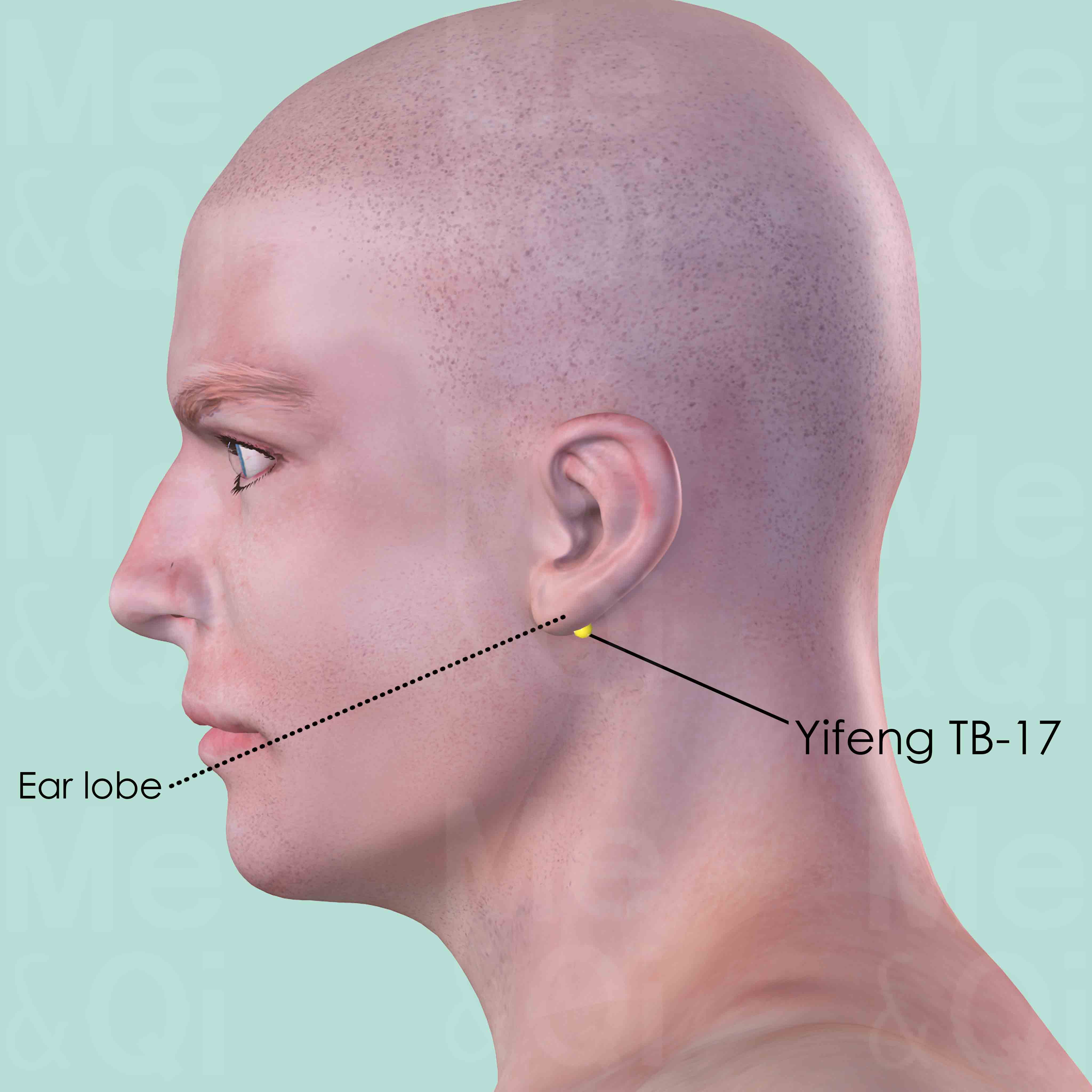
Yifeng TB-17
Posterior to the lobule of the ear, in the depression between the mandible and mastoid process.
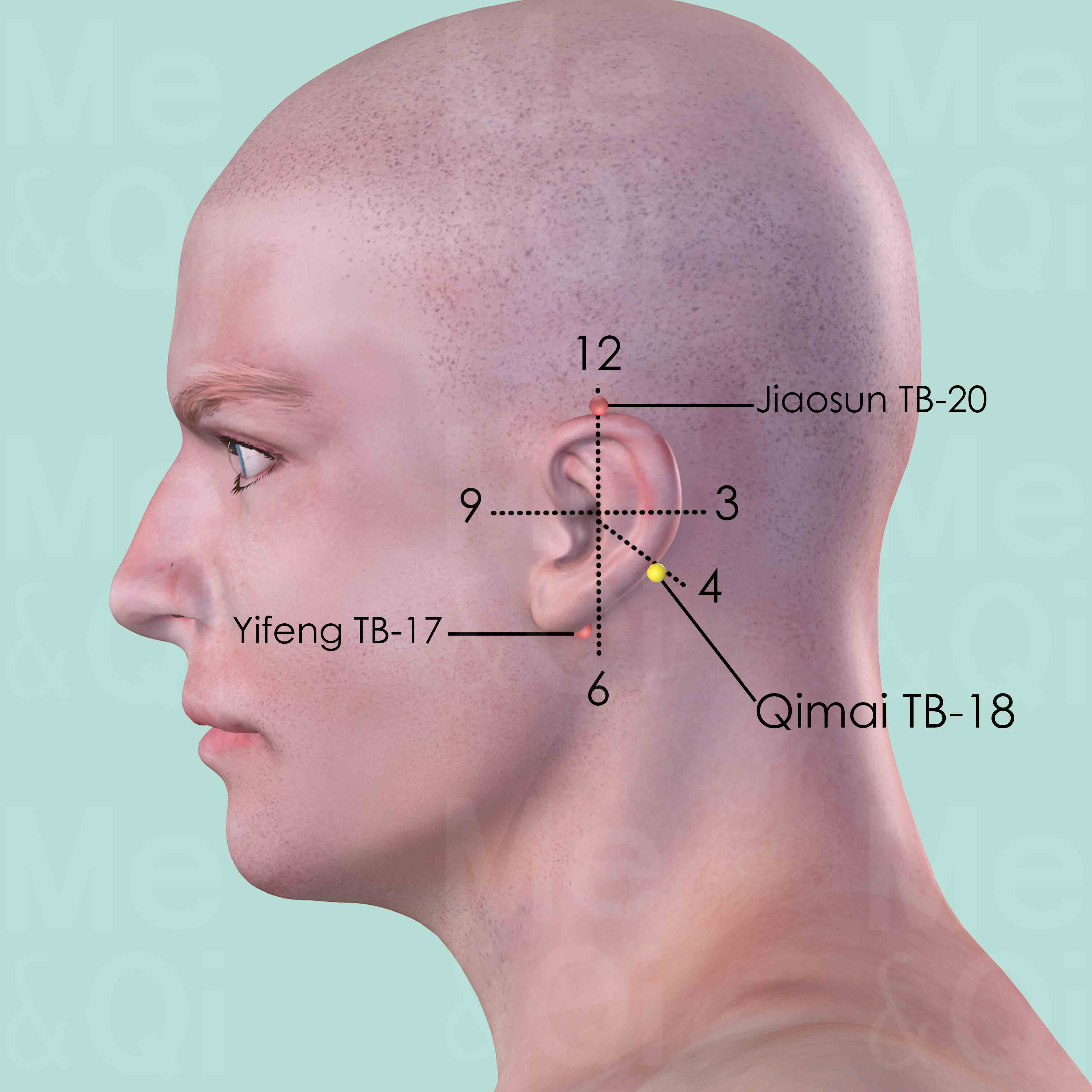
Qimai TB-18
In the center of the mastoid process, at the junction of the middle and lower third of the curve formed by Yifeng TB-17 and Jiaosun TB-20 posterior to the helix.
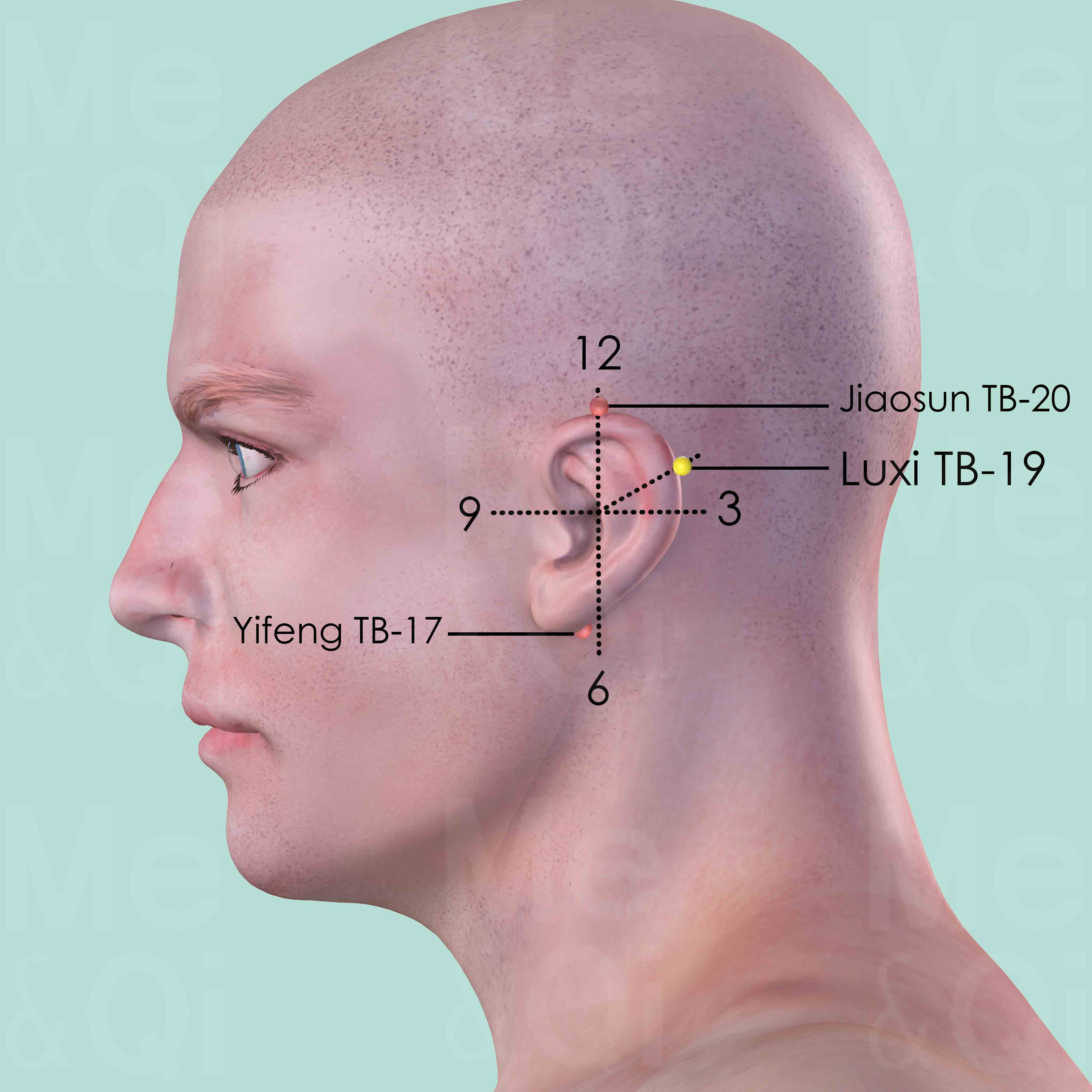
Luxi TB-19
Posterior to the ear, at the junction of the upper and middle third of the curve formed by Yifeng ST-17 and Jiaosun ST-20 behind the helix.
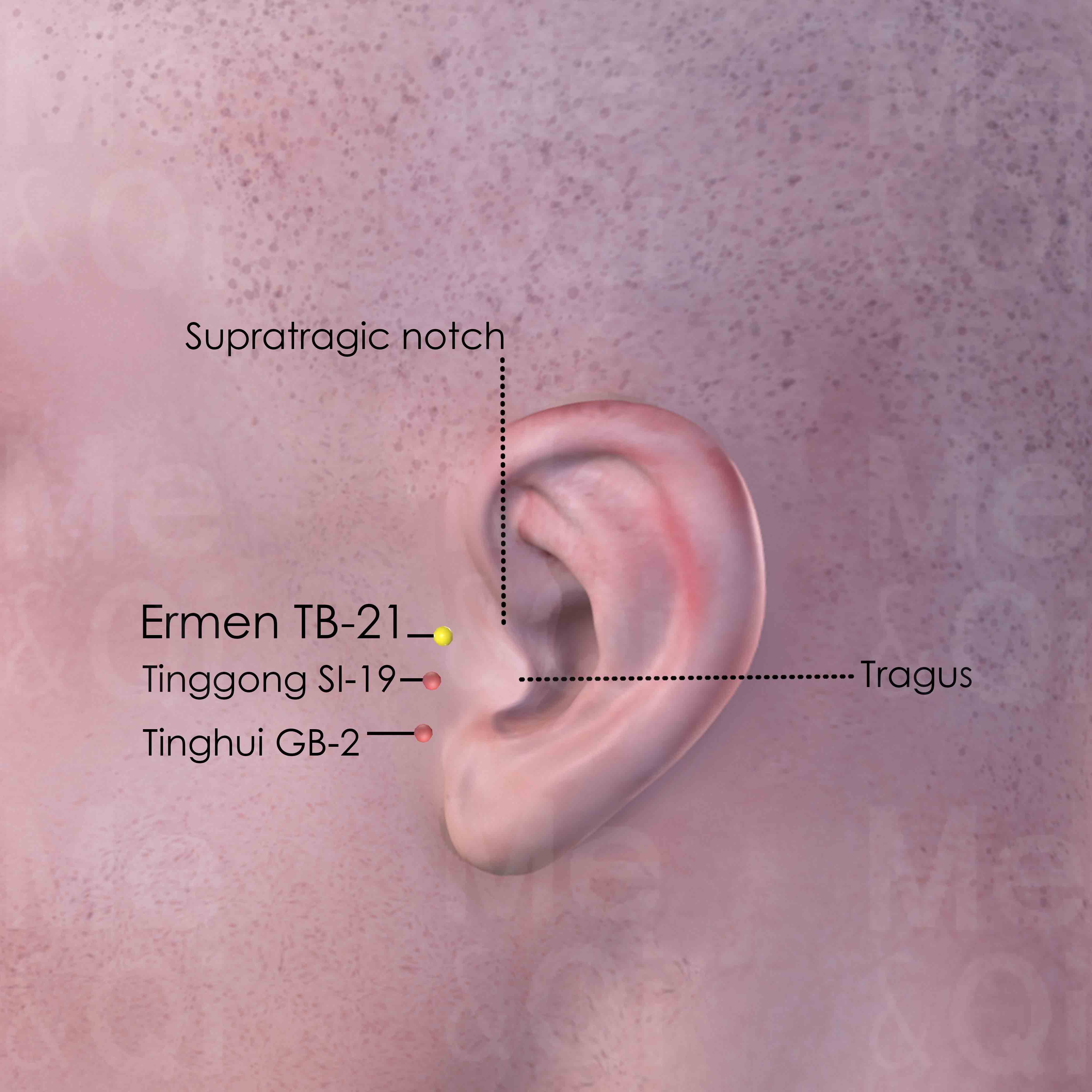
Ermen TB-21
In the depression anterior to the supratragic notch and slightly superior to the condyloid process of the mandible. The point should be located and needled with mouth open. Tinggong SI-19 and Tinghui GB-2 are located below Ermen TB-21.
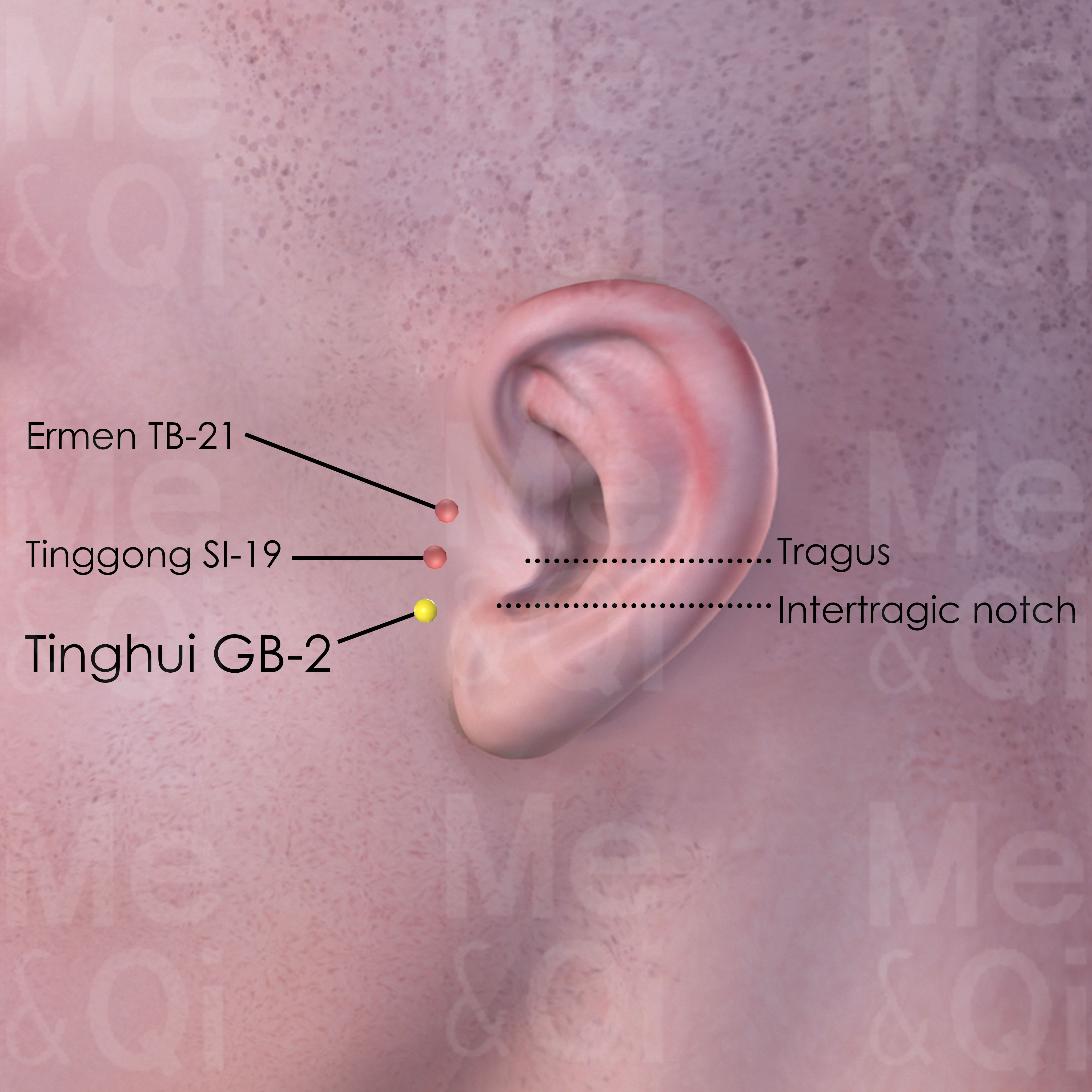
Tinghui GB-2
Anterior to the intertragic notch, directly below Tinggong SI-19, at the posterior border of the condyloid process of the mandible.
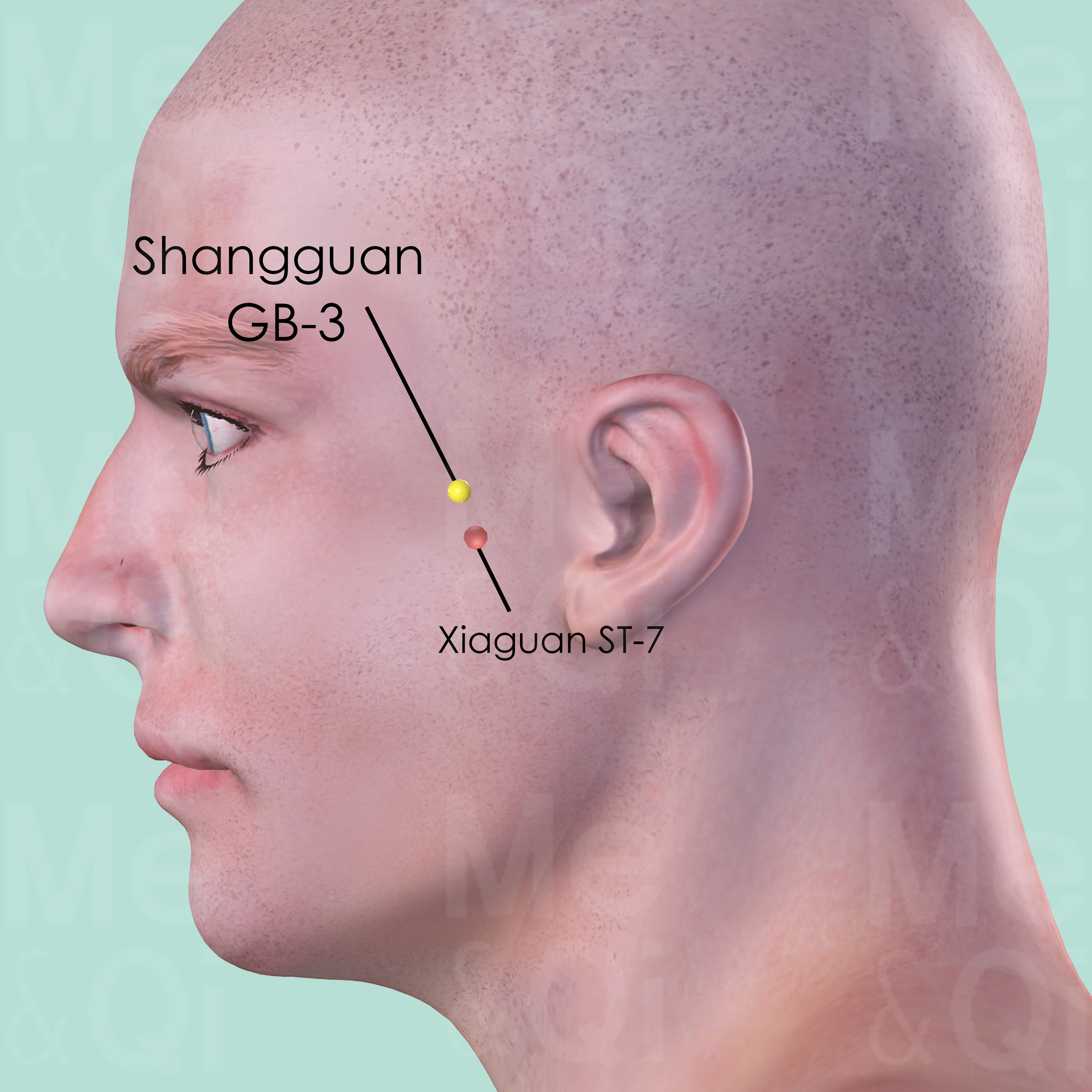
Shangguan GB-3
In front of the ear, on the upper border of the zygomatic arch, in the depression directly above Xiaguan ST-7.
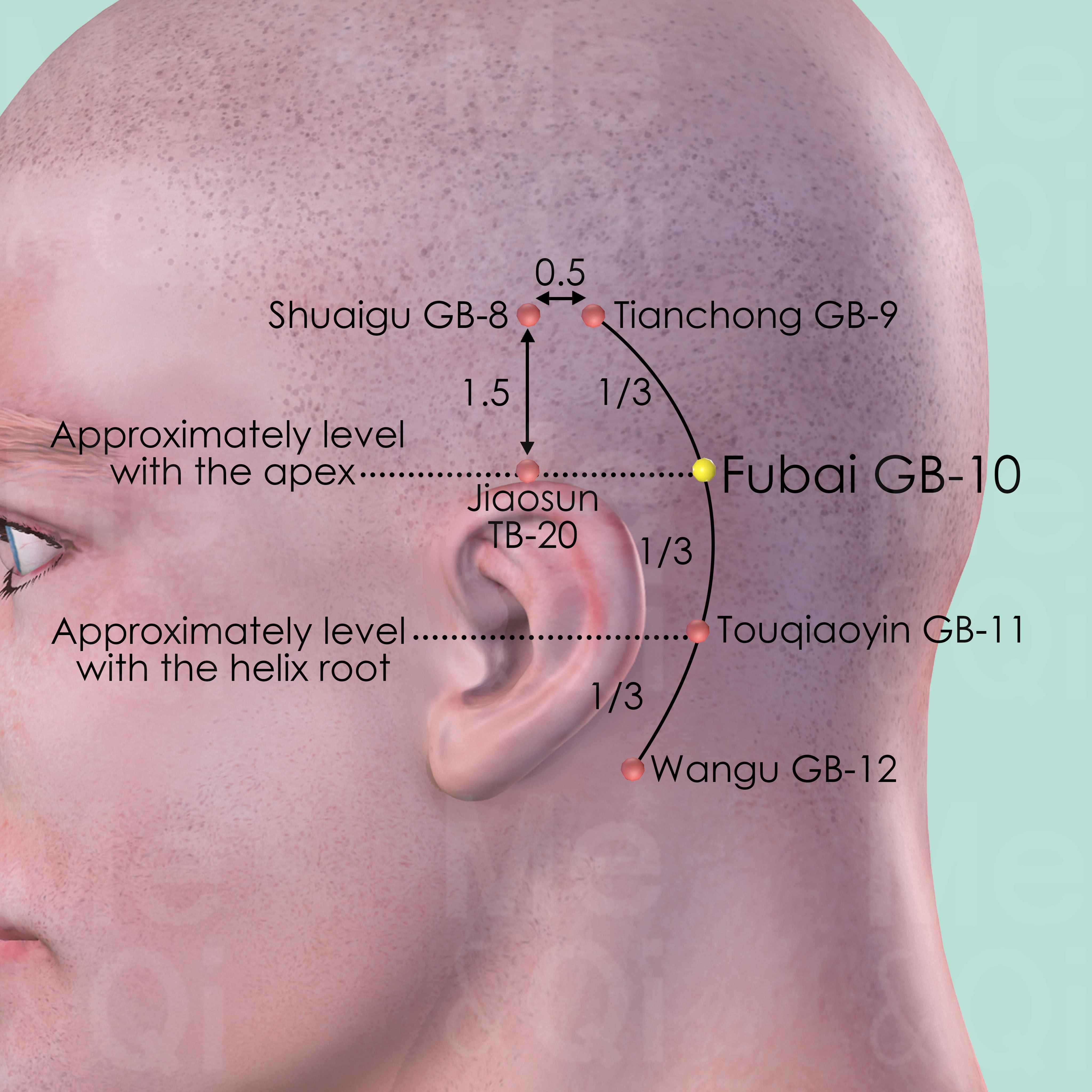
Fubai GB-10
Posterior and superior to the mastoid process, at the junction of the upper third and the two lower thirds of the curved line connecting Tianchong GB-9 and Wangu GB-12.
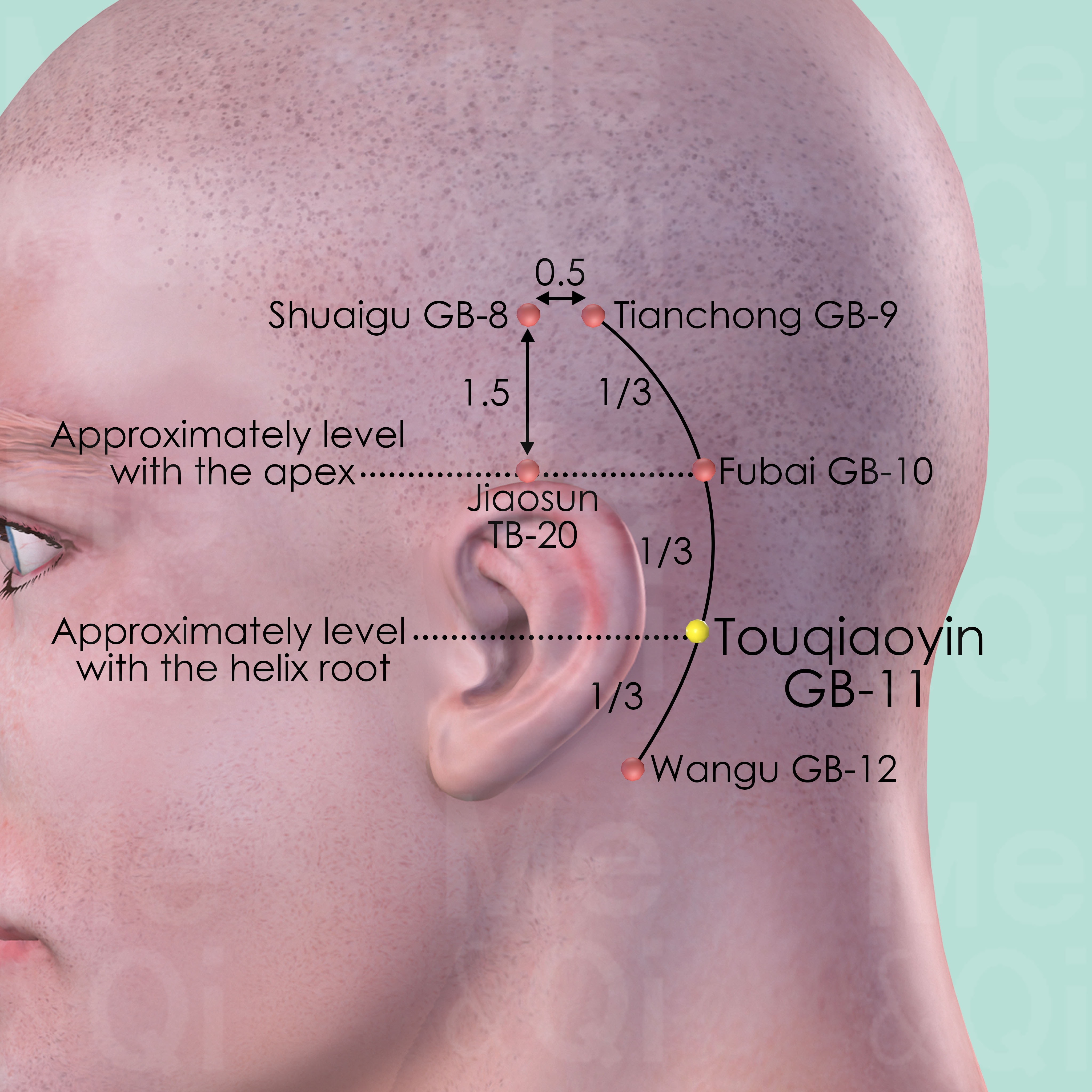
Touqiaoyin GB-11
Posterior and superior to the mastoid process, on the line connecting Tianchong GB-9, Fubai GB-10 and Wangu GB-12.
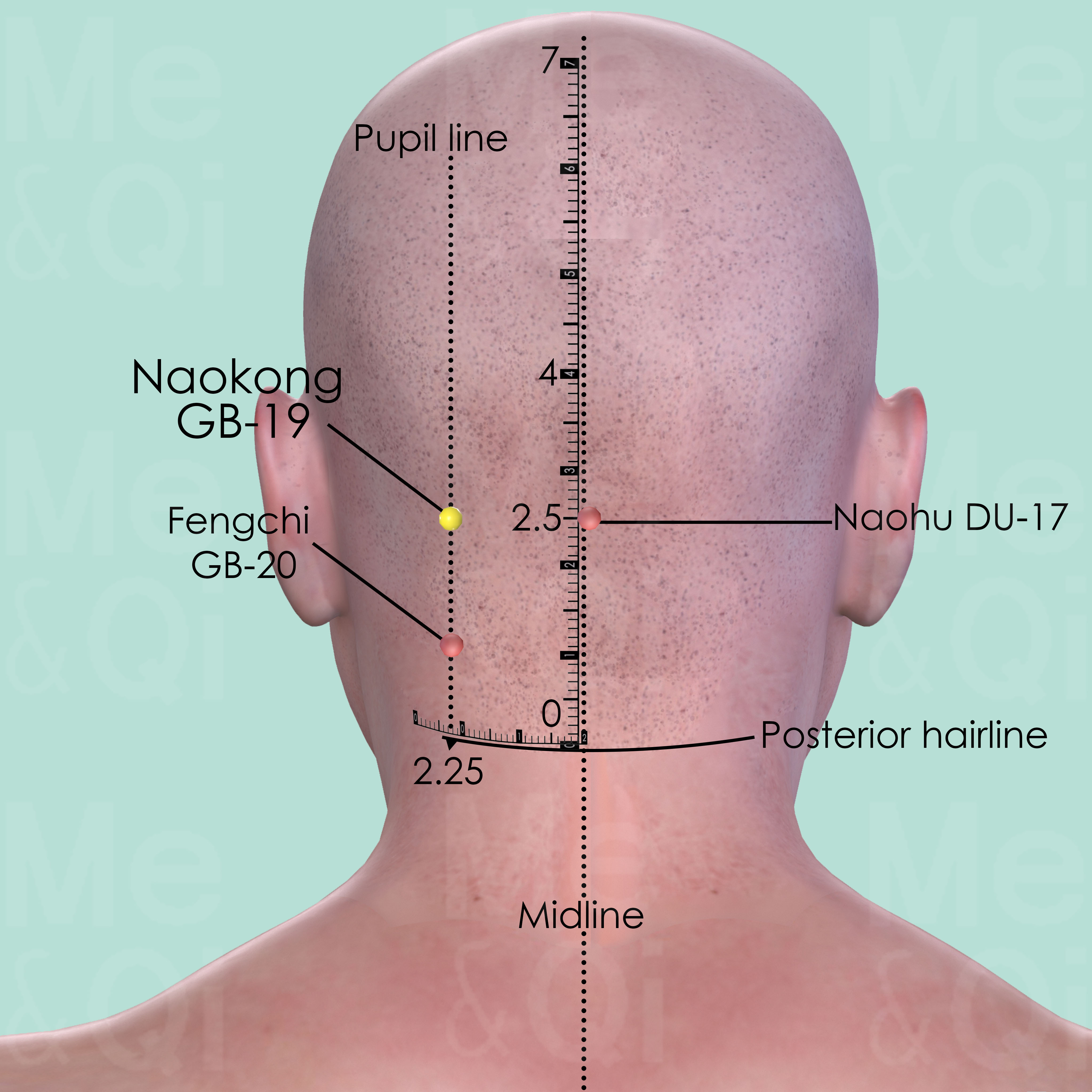
Naokong GB-19
Directly above Fengchi GB-20, level with Naohu DU-17, on the lateral side of the external occipital protuberance.
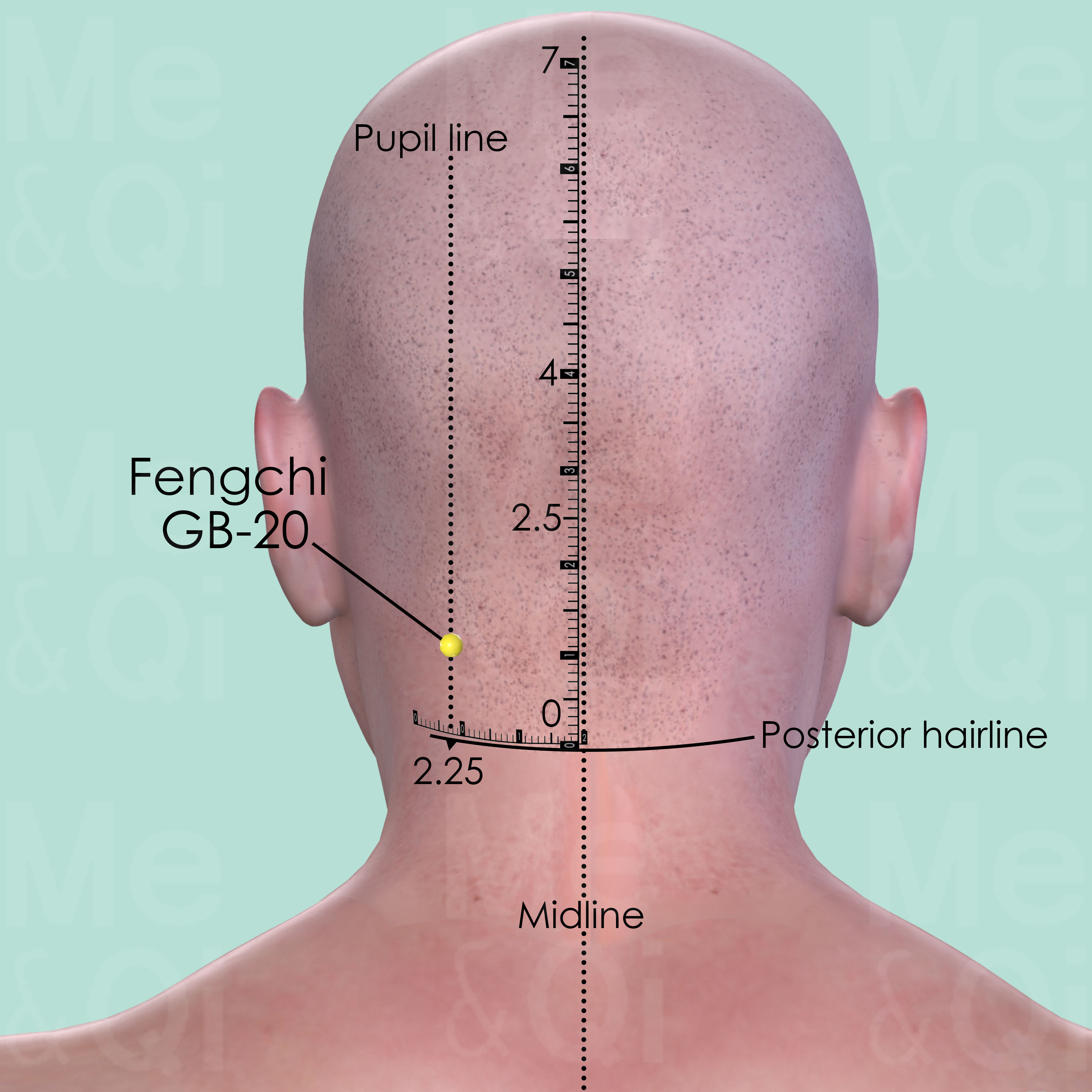
Fengchi GB-20
In the posterior aspect of the neck, below the occipital bone, in the depression between the upper portion of sternocleidomastoid and trapezius muscle.
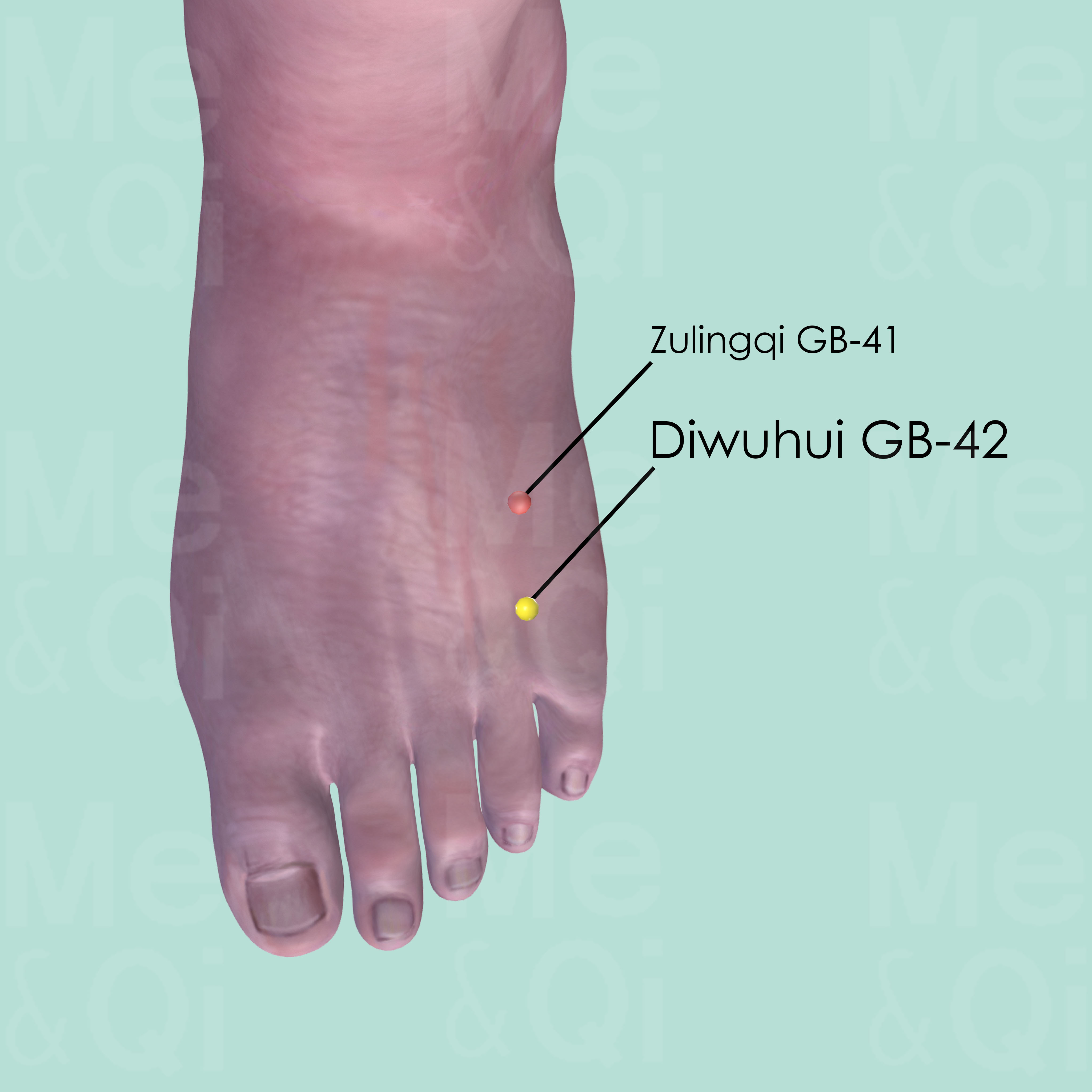
Diwuhui GB-42
Between the 4th and 5th metatarsal bones, on the medial side of the tendon of extensor digitorum longus muscle of the little toe.

Shaoze SI-1
On the ulnar side of the little finger, about 0.1 cun posterior to the corner of the nail.
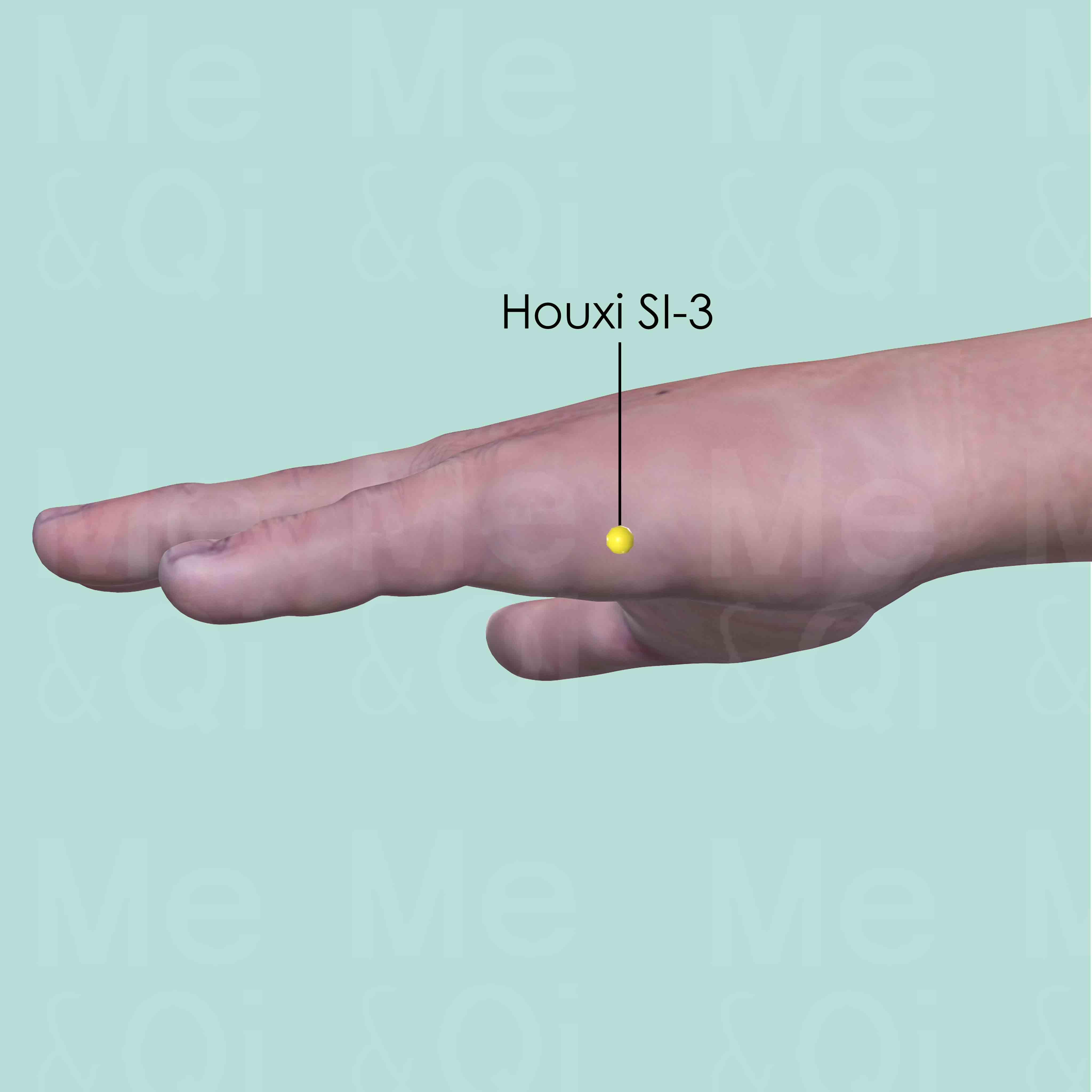
Houxi SI-3
Proximal to the head of the 5th metacarpal bone on the ulnar side, in the depression at the junction of the red and white skin.
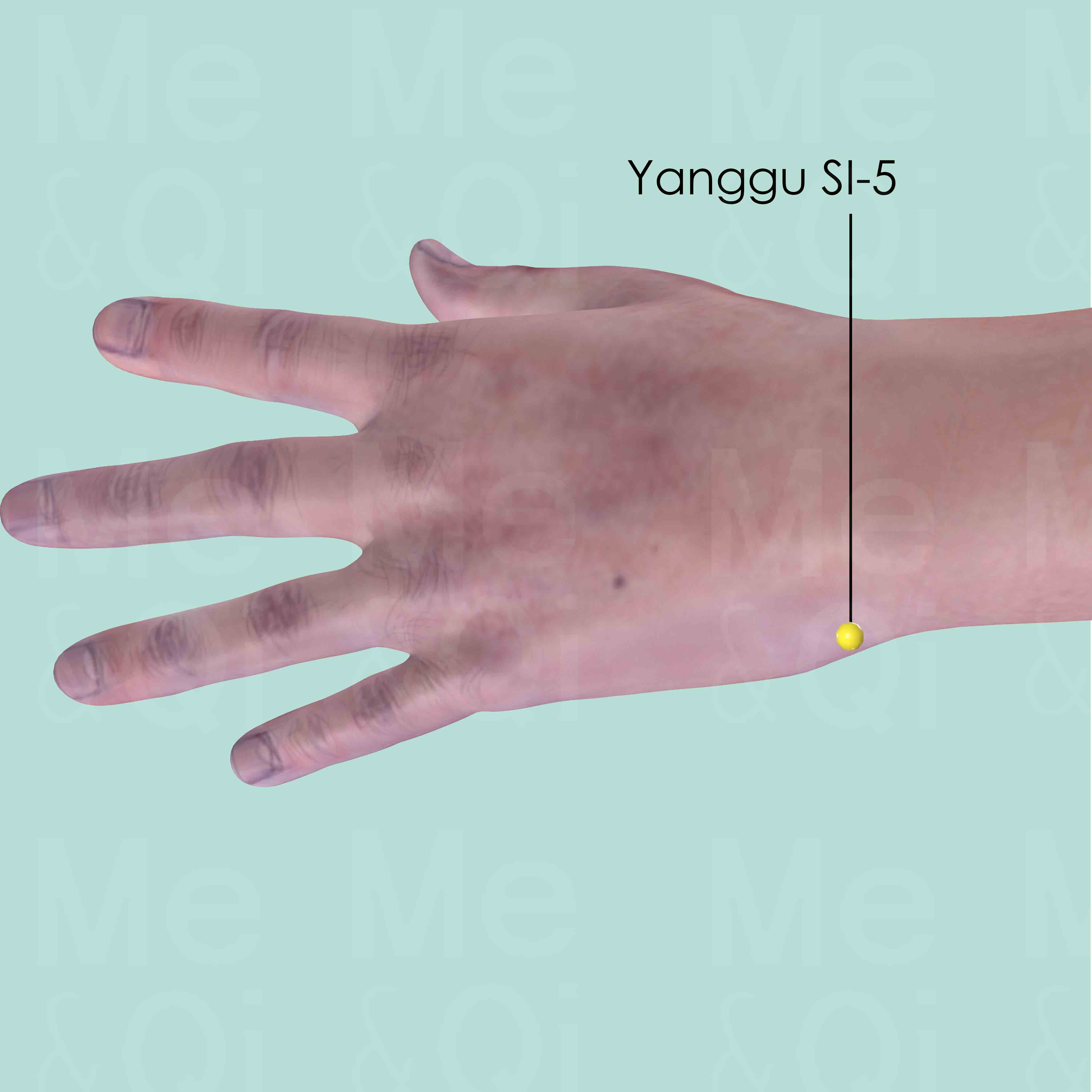
Yanggu SI-5
On the ulnar side of the wrist, in the depression between the styloid process of the ulna and the triquetral bone.
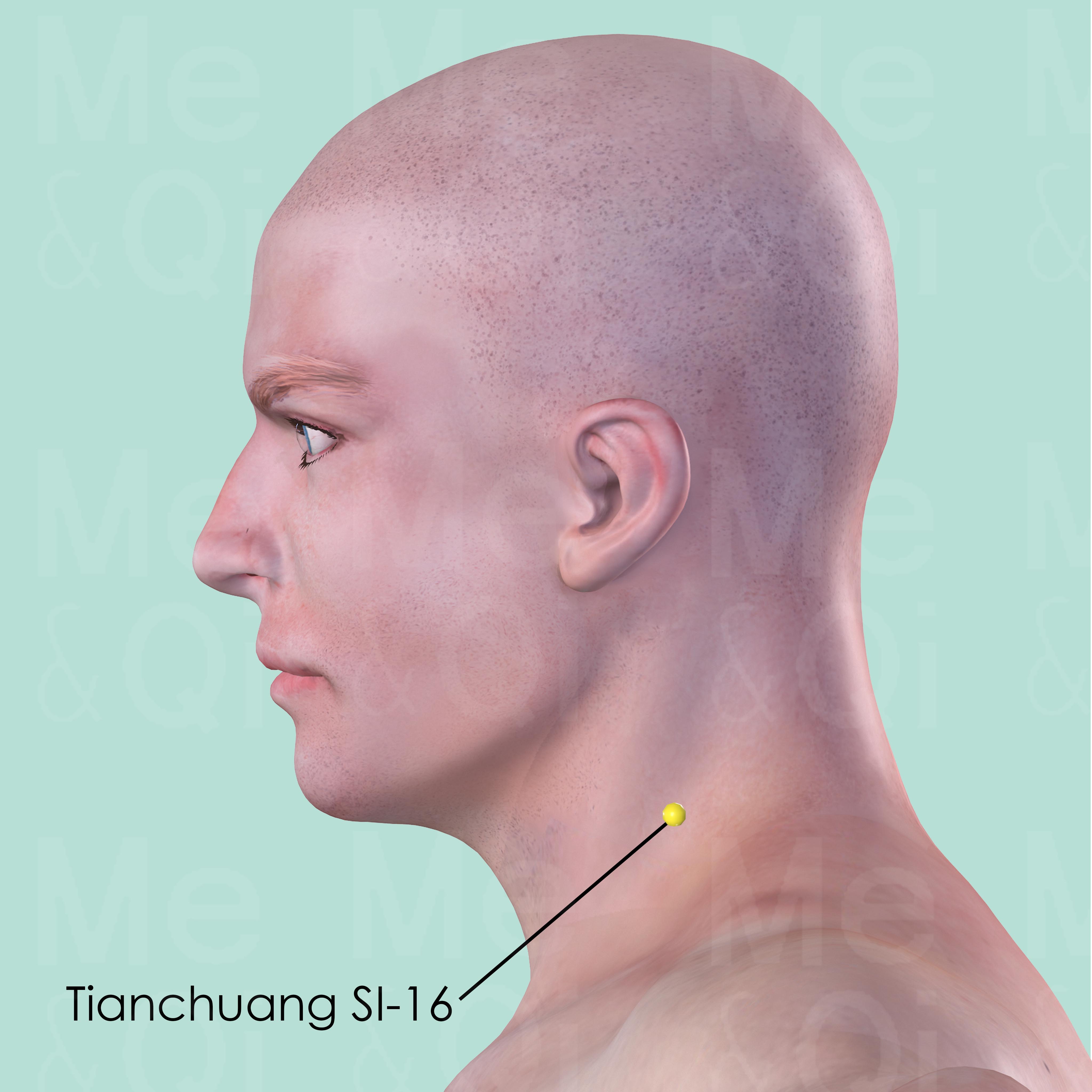
Tianchuang SI-16
In the lateral aspect of the neck, on the posterior border of sternocleidomastoid muscle, lever with the Adam's apple.
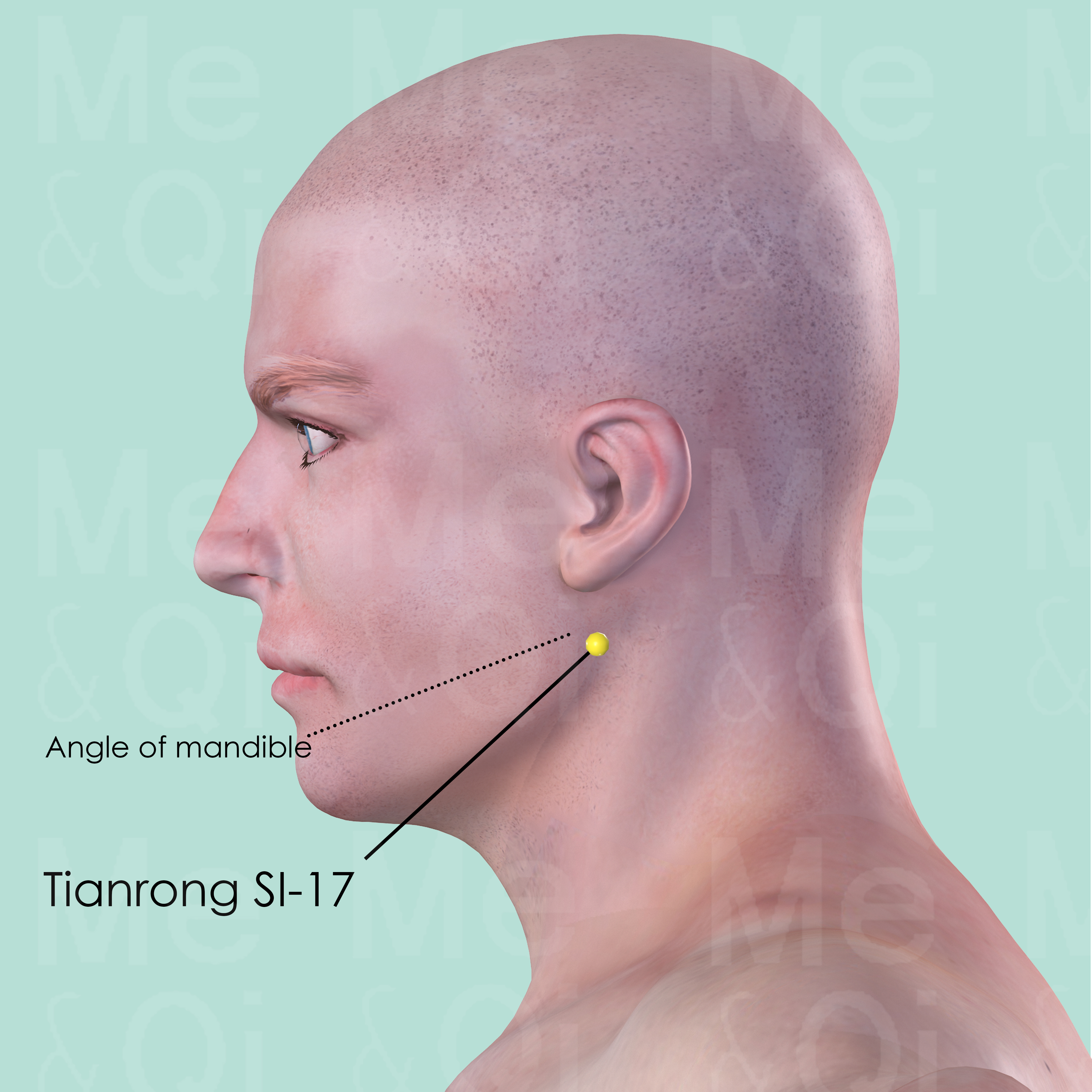
Tianrong SI-17
Posterior to the angle of mandible, in the depression on the anterior border of sternocleidomastoid muscle.
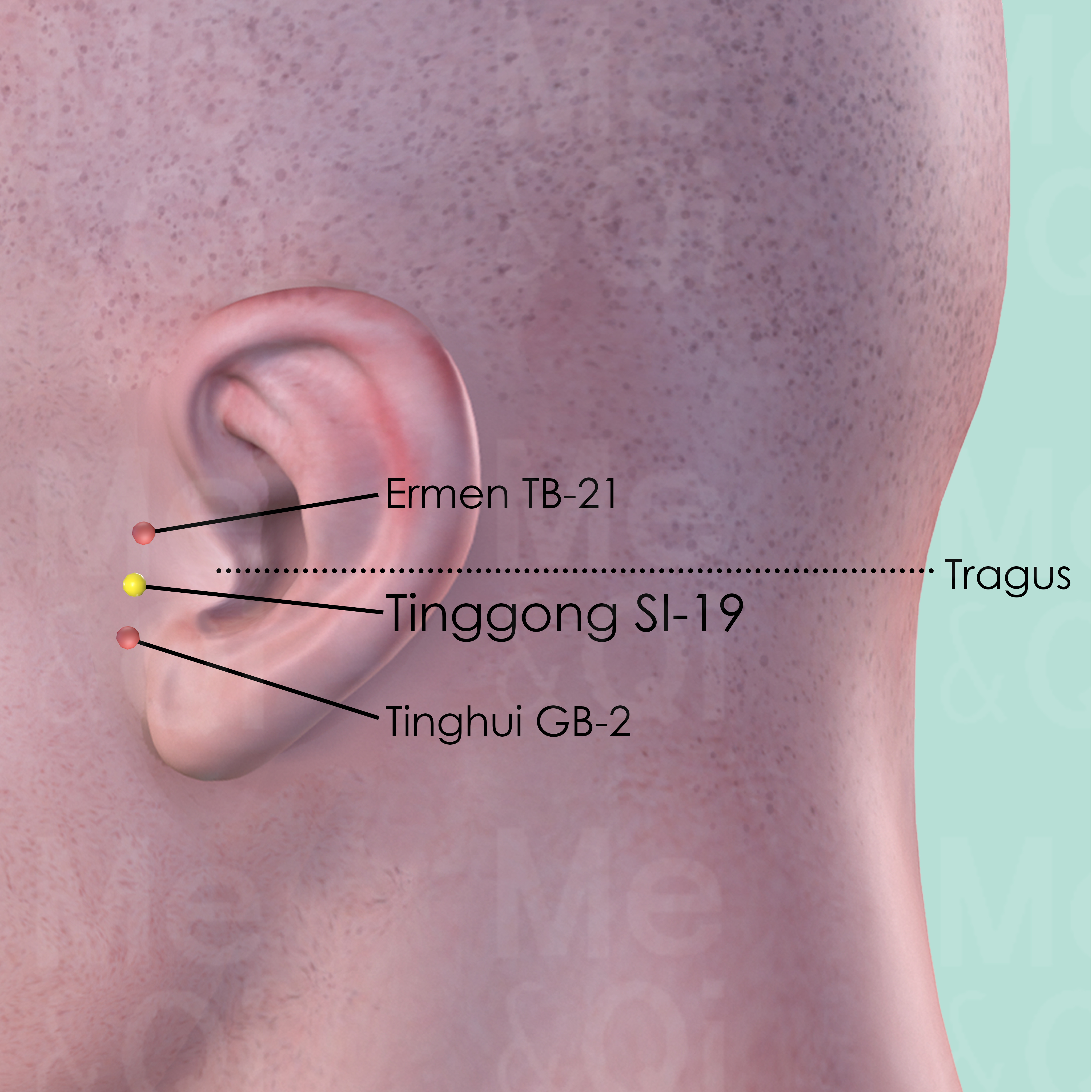
Tinggong SI-19
Between the tragus and the mandibular joint, where a depression is formed when the mouth is slightly open.
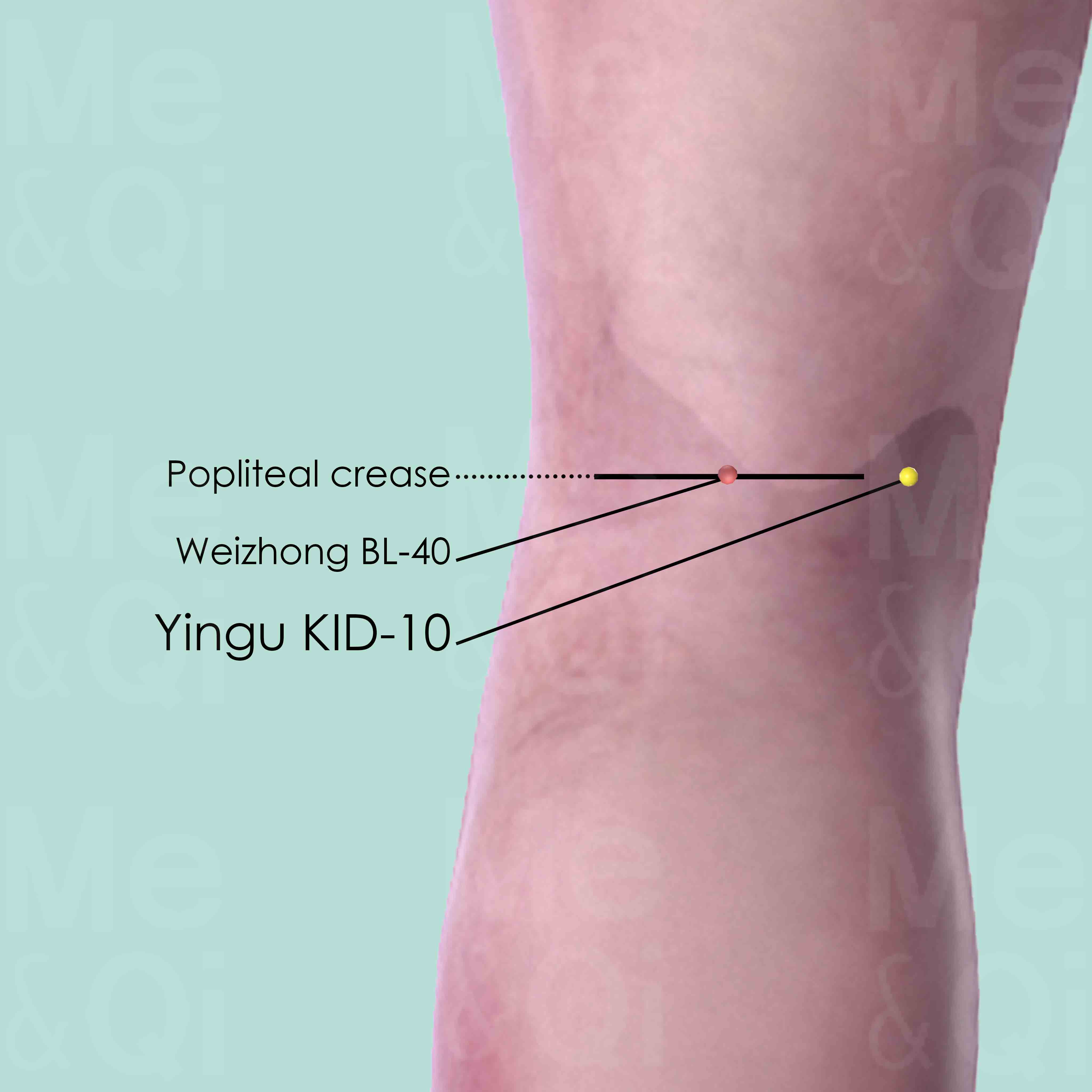
Yingu KID-10
On the medial side of the popliteal fossa, level with Weizhong BL-40, between the tendons of semitendinosus and semimenbranosus muscle when the knee is flexed.
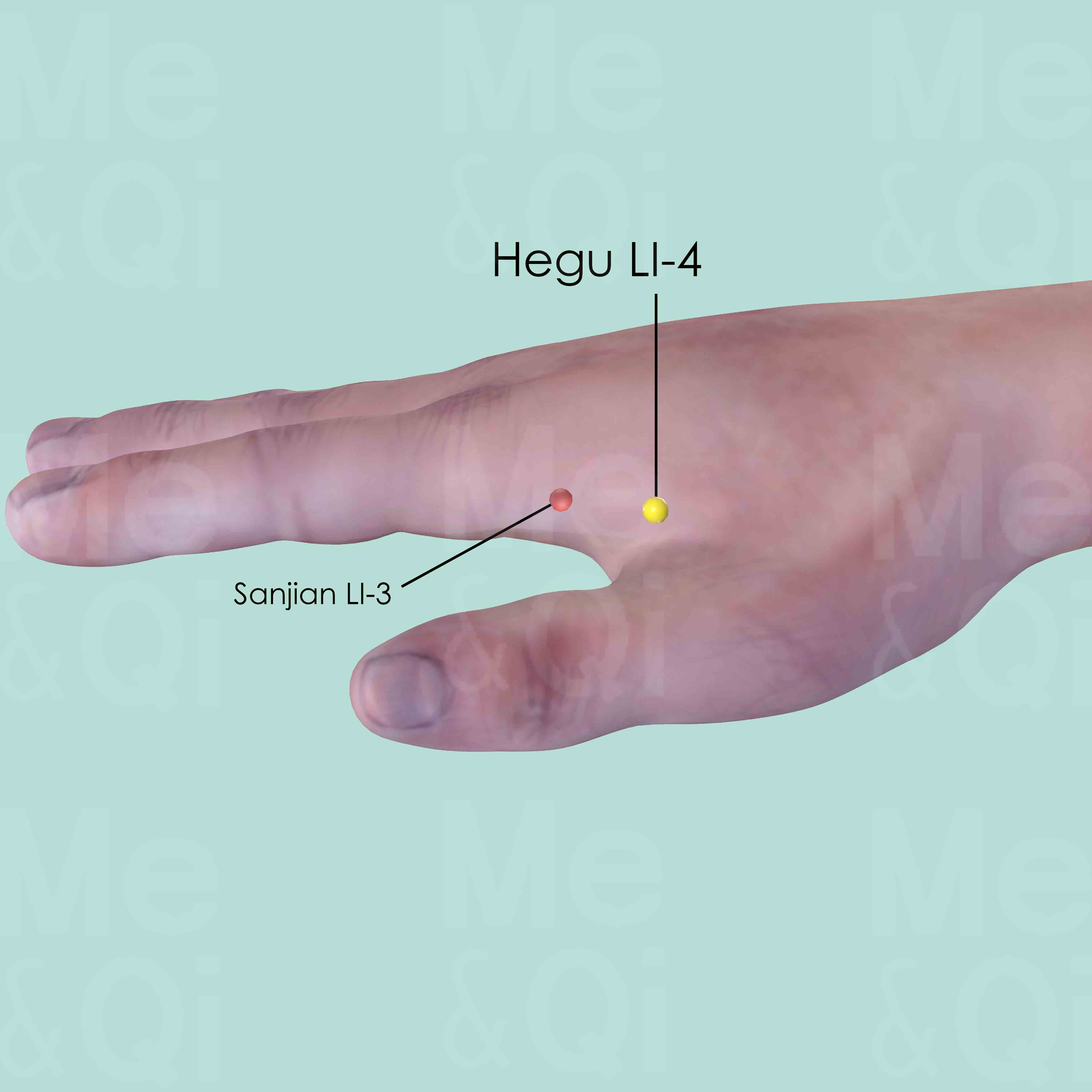
Hegu LI-4
Between the 1st and 2nd metacarpal bones, approximately in the middle of the 2nd metacarpal bone on the radial side.
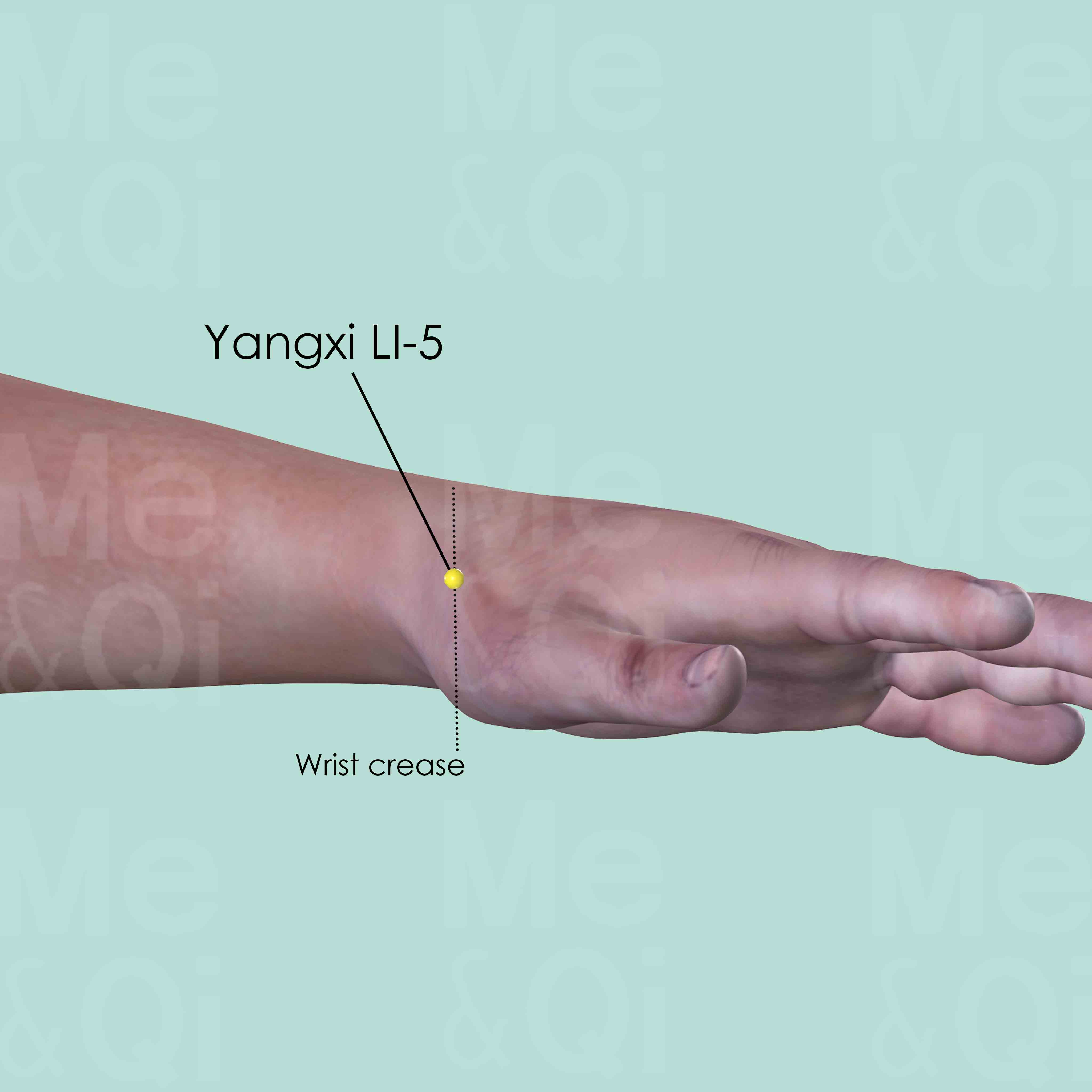
Yangxi LI-5
On the radial side of the wrist. When the thumb is tilted upward, it is in the depression on the wrist joint space (wrist crease) between the tendons of extensor pollicis longus and brevis muscles.
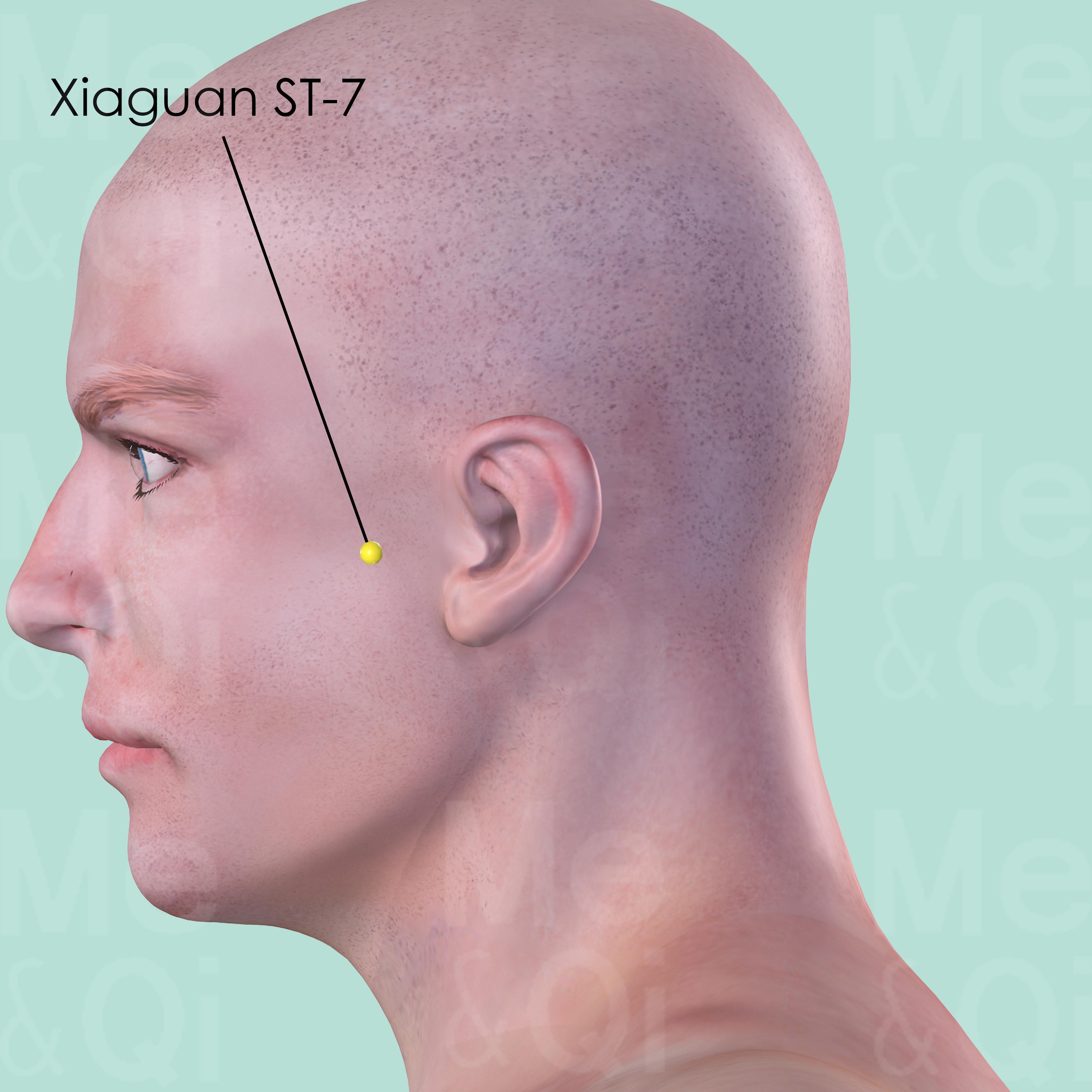
Xiaguan ST-7
In the depression at the lower border of the zygomatic arch, anterior to the condyloid process of the mandible. Xiaguan ST-7 is located when the mouth is closed.
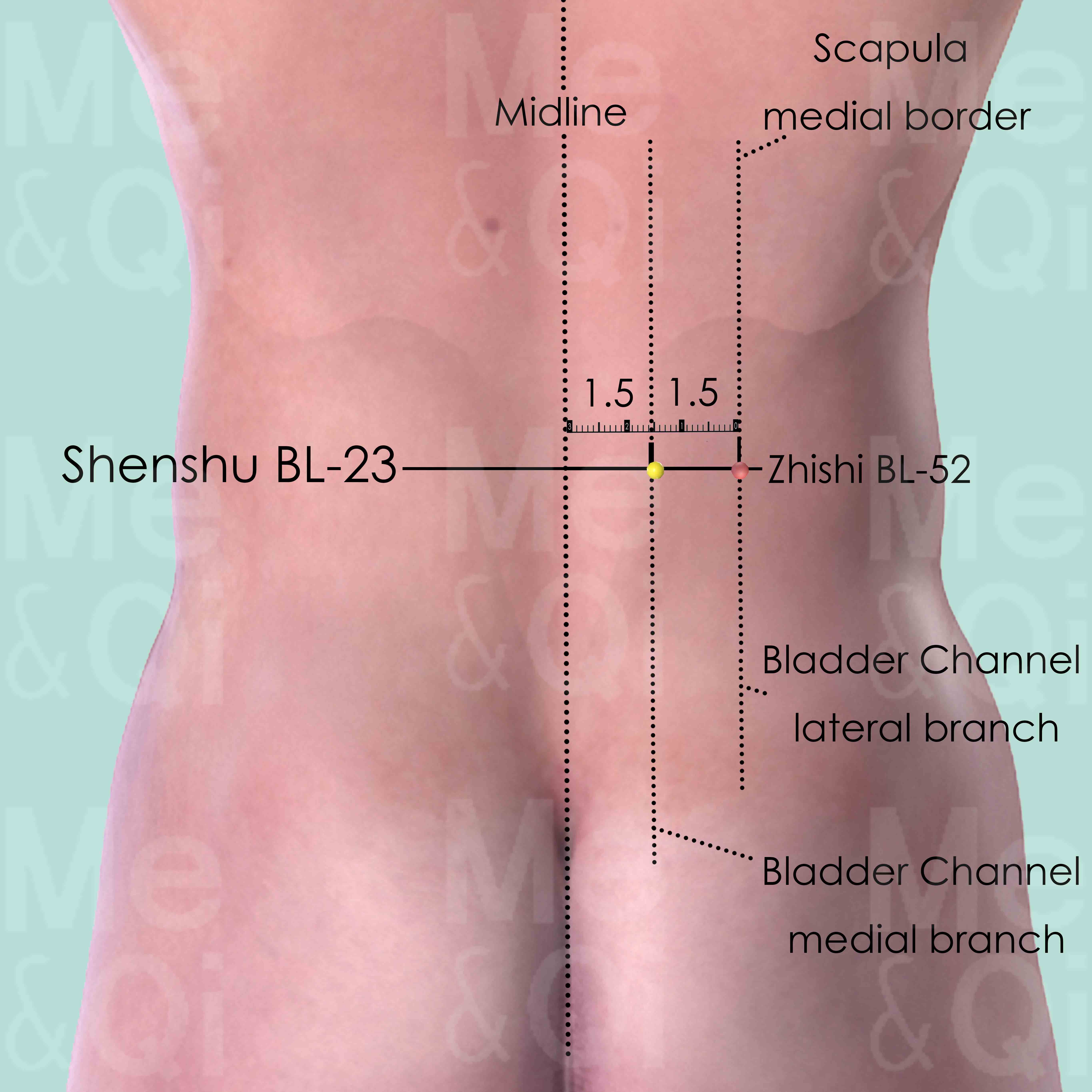
Shenshu BL-23
1.5 cun lateral to the lower border of the spinous process of the 2nd lumber vertebra (L2).
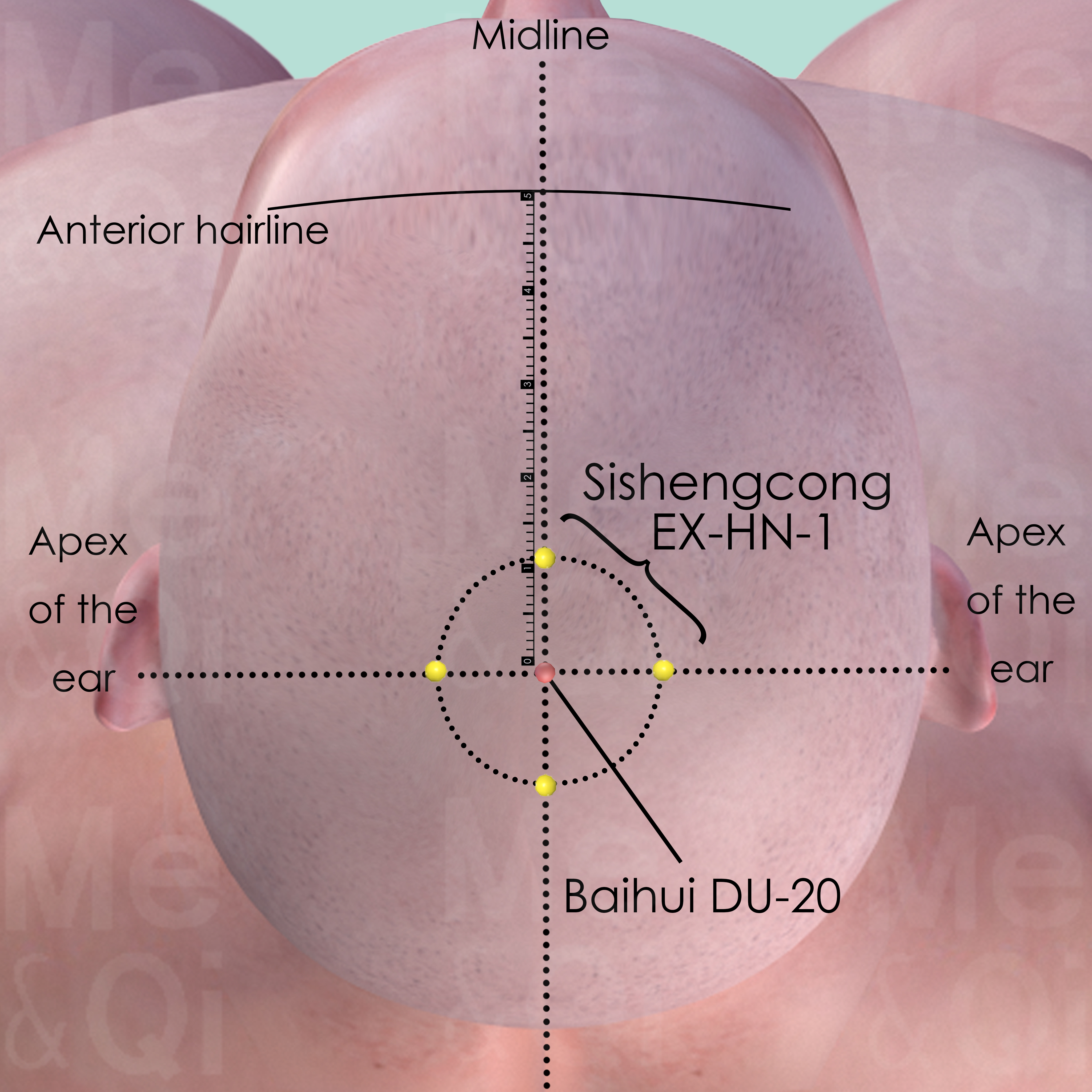
Sishengcong EX-HN-1
This is a group of 4 points and each located 1 cun from Baihui DU-20 in the anterior, posterior and lateral direction.

